2022 Department of Surgery


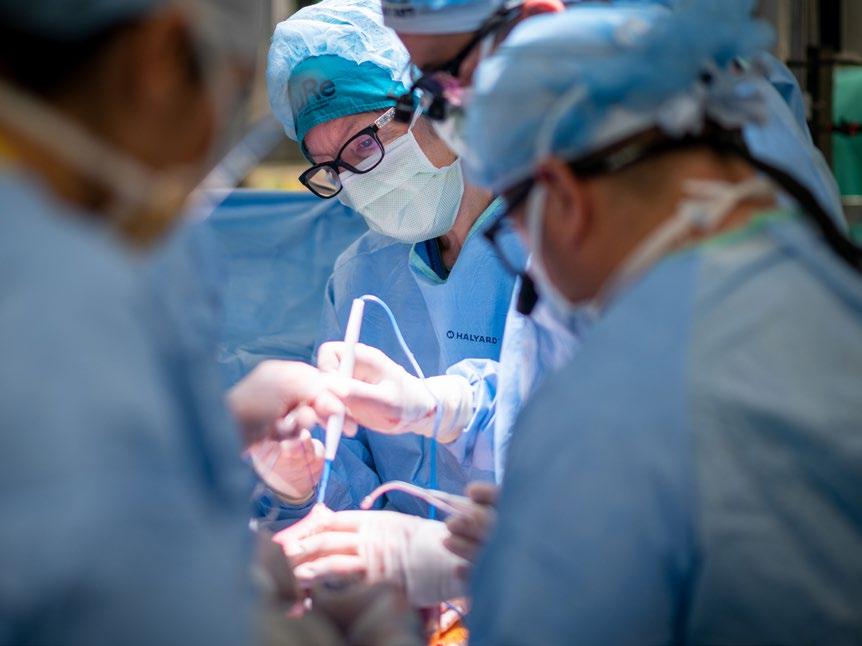

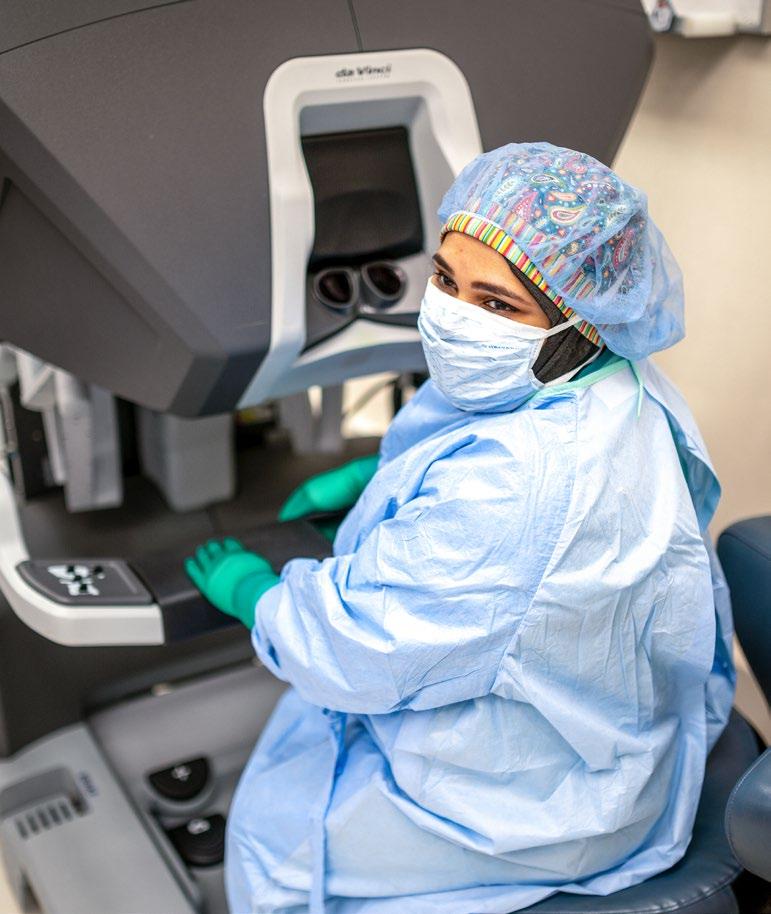
Year in Review


4
E
#4 in the UC system #5 in the west 21 st in the nation 2022 ANNUAL REPORT INTRODUCTION 123
and
9
96
26%
NIH
new
21 st ranking for surgery per Blue Ridge Institute for Medical Research 97 active contracts/awards 14
research
of Surgery At a Glance 1
12 clinical divisions
ACGM
training programs 2,348 residency applications
interns
residents
fellows
faculty
women faculty 8.2 million
research funding 5.7 million
research funding
million annual
funding Department
Each year in planning for our annual report, I reflect upon the year at hand in contrast to previous years. This past year has not been without hurdles, but even a worldwide pandemic did not hinder our determination or enthusiasm. I feel great pride in our past accomplishments and 2022 list of achievements. Our annual report shows our programs’ incredible growth and transformation and documents the many events that have shaped who we are today. Each issue tells a story of clinical advances, innovation, and research, mentoring surgeon leaders, and exploring new ideas. With the turn of a page, we are reminded of our incredible privilege in caring for patients, our community and educating future surgeons. This role is not one I take lightly, and I greatly appreciate the ongoing collaboration and support from all our faculty, staff, trainees, an d alumni.
We have continued to build on our proud history of clinical care, educational excellence, innovative research, and academic achievement. Our department has seen immense growth over the last year, with 16 new faculty and five more beginning this winter, bringing us to over 115 full-time physicians and scientists, more than 43 advanced practice providers, and 123 trainees. We continue to find ways to ensure that equity, diversity and social justice in patient care remain at the forefront of our strategies, and we recognize the vital work that must be done to close the gaps. In this regard, I am constantly inspired by the wealth of passionate members of the Department of Surgery community who work tirelessly to create a work environment that is respectful, inclusive, and safe. We proudly note that women and underrepresented people in medicine make up more than half of our total training recruits and over a quarter of our new faculty.
We have had several exciting new clinical programs start this year. We performed the first transoral thyroidectomy in Northern and Central California, providing patients with a scarless option. We also opened our Surgery Foregut & Esophageal Motility Center, which will help patients with a wide array of esophageal conditions, and we are launching soon a new lymphedema clinic and a new breast reconstruction clinic. With the recruitment of new colorectal and plastic and reconstructive faculty, we are looking forward to expanded offerings in the new year from these two services. In addition, we joined a new initiative to improve the organ transplantation system throughout California called the “Pluralist,” which seeks to reduce socioeconomic barriers to organ transplants.
Our department continues to be on the leading edge of surgical research with a new $3M grant to develop a smart durable vascular graft for kidney patients, an NIH grant to study synthetic data use in health care, a $2M NIH grant to produce and phenotype knockout mouse models for up to 1,000 genes, as well as receiving a 2022 Harrington Scholar-Innovator award to further research placental stem cells for acquired spinal cord injuries.
This annual report highlights many examples of our ongoing commitment to excellence in clinical care, research, and surgical education. Thank you for taking the time to read our report and learn more about our department. We are continuously grateful for your support of our mission to serve our Northern California region an d beyond.
Sincerely,
 Diana Farmer, M.D., F.A.C.S., F.R.C.S.
Diana Farmer, M.D., F.A.C.S., F.R.C.S.

UC DAVIS HEALTH DEPARTMENT OF SURGERY 2
Faculty and Clinicians
Division of Burn Surgery and Reconstruction
Division of Cardiac Surgery
Tina Palmieri, M.D., F.A.C.S. Chief, Burn Surgery
Vice Chair, Clinical Trials Professor
Director, Firefighters Burn Institute Burn Center at the University of Califor nia, Davis
Jason H eard, M.D. Assistant Professor
Kathleen Romanowski, M.D., F.A.C.S. Associate Professor

Soman Sen, M.D., F.A.C.S. Professor

Bob Kiaii, M.D., F.R.C.S.C., F.A.C.S.
Chief, Cardiac Surgery
Professor
ADULT CARDIAC SURGERY
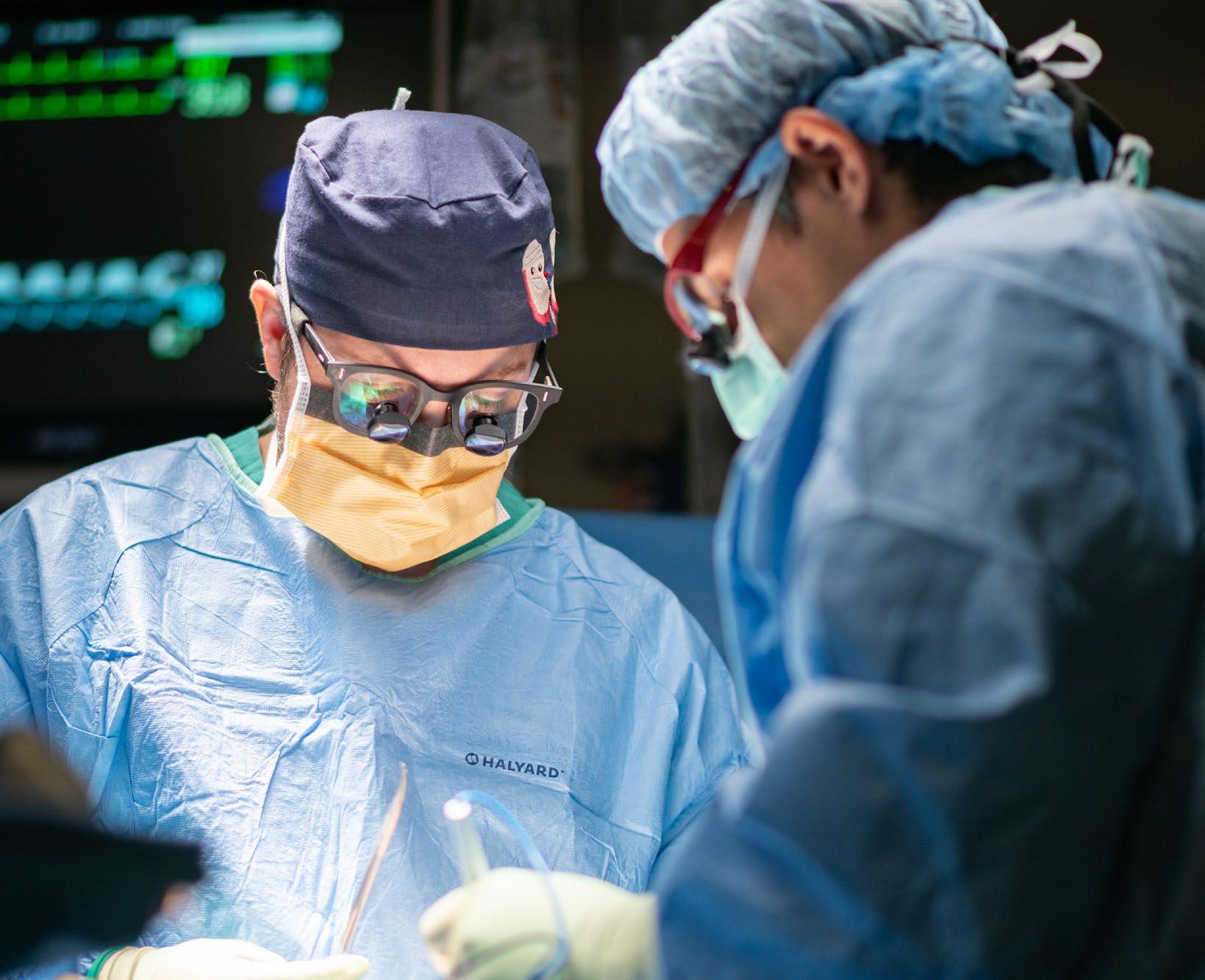
Jorge Torres Catrip, M.D., F.A.C.S. Associate Professor
Sabrina Evans, M.D.
Associate Program Director, Cardiothoracic Residency Program Assistant Professor
PEDIATRIC CARDIOTHORACIC SURGERY
Tim Pirolli, M.D.
Associate Professor
Gary Raff, M.D., F.A.C.S.
Section Head, Pediatric Cardiac Surgery
Surgical Director, Pediatric Heart Center
Program Director, Cardiothoracic Residenc y Program
Professor
2022 ANNUAL REPORT | FACULTY 3
Division of General Thoracic Surgery
Division of Colorectal Surgery
Sean Flynn, M.D. Assistant Professor
Robert Kucejko, M.D., M. S., M.B.A. Assistant Professor
Division of Foregut, Metabolic and General Surgery
David Tom Cooke, M.D., F.A.C.S.
Chief, General Thoracic Surgery
Vice Chair, Faculty Development and Wellness
Associate Director, Cardiothoracic Robotics Program
Professor
Lisa Brown, M. D., M.A.S.
Associate Professor
Luis G odoy, M.D.
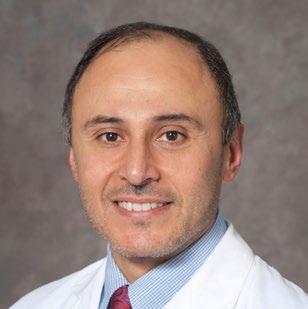
Assistant Professor
Miquell Miller, M .D., M.Sc. Assistant Professor

Erik Noren, M .D., M.S. Assistant Professor
James E. Taylor, M.B. B.Chir., M.P.H. Assistant Professor
Mohamed Ali, M.D., F.A.C.S.
Chief, Foregut, Metabolic and Gener al Surgery
Director, Minimally Invasi ve Surgery Professor
Shushmita Ahmed, M.D., F.A.C.S.
Associate Program Director, General Surgery Residency Assistant Professor
Victoria Lyo, M.D., M.T.M., F.A.C.S.
Director, Motili ty Center Assistant Professor
Hazem Shamseddeen, M.D., F.A.C.S., F.A .S.M.B.S.
Associate Professor
GASTROINTESTINAL SURGERY
Hung Sy Ho, M.D., F.A.C.S.
Earl Wolfman Endowed Professor, Gener al Surgery Professor
Jonathan Pierce, M.D., F.A.C.S. Health Sciences Clinical Professor
Co-Director of Surgery Clerkship
Surgical Director, Center for Virtual Care Professor
UC Davis Health Department of Surgery UC DAVIS HEALTH DEPARTMENT OF SURGERY 4
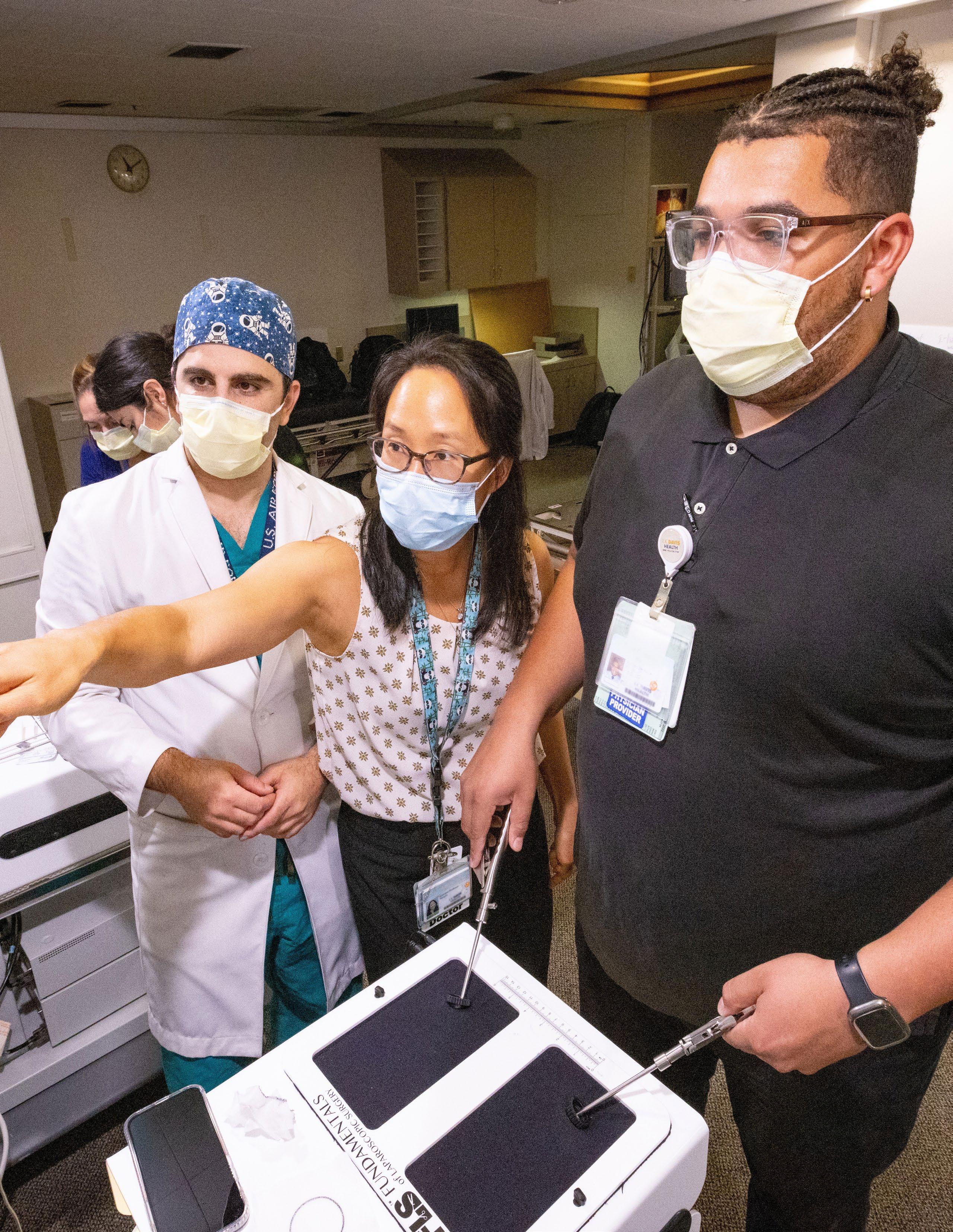
2022 ANNUAL REPORT | FACULTY 5
Division of Pediatric, General, Thoracic and Fetal Surgery
Division of Plastic and Reconstructive Surgery
Division of Surgical Oncology
Shinjiro Hirose, M.D., F.A.C.S.
Chief, Division of Pediatric, General, Thoracic and Fetal Surgery
Vice Chair, Finance and Children’s Services
Director of Pediatric Surgery, Shriners Children’s Northern C alifornia
Director, UC Davis F etal Care and Treatment Center Professor
Jamie Anderson, M.D.
Assistant Professor
Erin Brown, M.D., F.A.C.S.
Director, Pediatric Surgical Oncology Assistant Professor
Diana Farmer, M.D., F.A.C.S., F.R.C.S.
Distinguished Professor and Pearl Stamps Stewart Chair
Chair, Department of Surgery, UC Davis School of Medicine
Surgeon-in-Chief, Emeritus UC Davis Children’s Hospital
Founder and Co- Director, Center for Surgical Bioengineering
PI, the CuRe Trial
Jonathan Kohler, M .D., M.A. Medical Director, Pediat ric Trauma
Associate Professor
Payam Saadai, M.D., F.A.C.S.
Director, Pediatric Colorect al Program
Assistant Professor
Minna Wieck, M.D., F.A.C.S.
Assistant Professor
Granger Wong, M.D., D.M.D., F.A.C.S. Chief, Division of Plastic and Reconstructi ve Surgery Professor
Ian Powelson, M.D. Assistant Professor
Lee Pu, M.D., Ph.D., F.A.C.S. Professor
Ara Salibian, M.D. Associate Professor
Ravi Sood, M.D. Associate Professor
Michelle Zaldana-Fl ynn, M.D. Assistant Professor
HAND PLASTIC SURGERY
Clifford Pereira, M.D., F.A.C.S., F.R.C.S. (Eng) Associate Professor
Andrew Li, M.D. Assistant Professor


Robert Canter, M.D., F.A.C.S.
Chief, Division of Surgical Oncology Professor
BREAST SURGERY
Hira Hasain A bidi, M.D. Assistant Professor
Candice Sauder, M.D., M.Ed., F.A.C.S.
Associate Program Director, General Surgery Residency Assistant Professor
ENDOCRINE SURGERY
Michael Campbell, M.D., F.A.C.S. Section Head, Endocrine Surgery Associate Professor
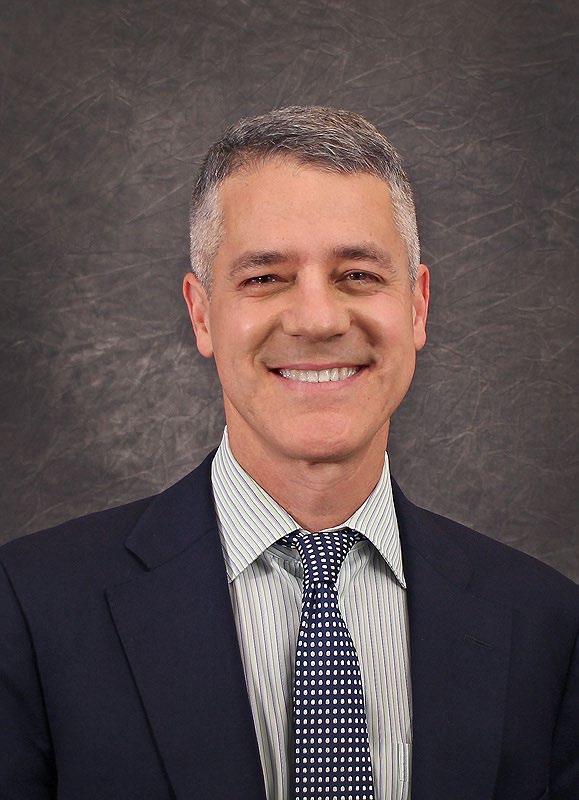
Claire Graves, M.D., F.A.C.S. Assistant Professor
HEPATOBILIARY SURGERY
Richard Bold, M.D., F.A.C.S. Vice Chair, Strategy Physician- in-Chief, UC Davis Comprehensive Cancer Center Medical Director, UC Davis Cancer Care Network
Isabelle J. McDonald Endowed Professor of Cancer Research Professor
MELANOMA
Cameron Gaskill, M. D., M.P.H.
Director of Global Surgical Oncology Assistant Professor
UC DAVIS HEALTH DEPARTMENT OF SURGERY 6
Division of Transplant Surgery
Division of Trauma, Acute Care Surgery and Surgical Critical Care
Richard Perez, M.D., F.A.C.S.

Chief, Division of Transplant Surgery Medical Director, Transplant Center Director, Kidney and Pancreas Transplant Program Professor
Naeem Goussous, M.D., F.A.C.S. Assistant Professor
Neal Mineyev, M.D., F.A.C.S. Assistant Professor
Junichiro Sageshima, M.D., F.A.C.S. Surgical Director, Living Donor Kidney Transplant Program Professor
Peter Than, M.D. Assistant Professor
Rachael Callcut, M.D., M.S.P.H., F.A.C.S.
Chief, Division of Trauma, Acute Care Surgery and Surgical Cri tical Care Vice Chair, Clinic al Science Director, Trauma Research
UC Davis Health Chief Research Informatics Officer (CRIO) Associate Dean, Data Science and Innovation Professor
John Anderson, M.D., F.A.C.S. Professor
Ian Brown, M.D., F.A.C .S., Ph.D. Associate Professor
Christine Cocanour, M.D., F.A.C.S. Section Head, Surgical Crit ical Care Professor
Eleanor Curtis, M.D. Assistant Professor
Joseph Galante, M.D., F.A.C.S. Medical Director, Perioperative Services Trauma Medical Director Professor
Rachel Hight, M.D., F.A.C.S. Associate Professor
Gregory Jurkovich, M.D., F.A.C.S. Vice Chair, Clinical Affairs and Quality Donant Endowed Chair in Trauma Medicine and Trauma Research Professor
David Leshikar, M.D.
Associate Program Director, General Surgery Residency and Surgical Critical Care Fellowship Associate Professor
Jennifer Ly nde, D.O. Assistant Professor
Ho Phan, M.D., F.A.C.S. Professor
Tanya Rinderknecht, M.D., F.A.C.S. Assistant Professor
Anamaria Robles, M.D. Assistant Professor
Edgardo Salcedo, M.D., F.A.C.S.
Program Director, General Surgery Residency Surgical Director, Center for Simulation and Education Enhancement
Interim Vice Chair of Education, Department of Surgery
Professor
David Shatz, M.D., F.A.C.S. Professor
Sawyer Smith, M.D., M.B.A. Assistant Professor
Kathryn Stadeli, M. D., M.P.H. Assistant Professor
Garth Utter, M.D., F.A.C.S. Professor
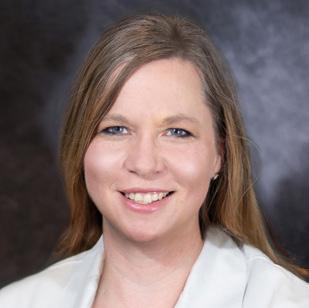
2022 ANNUAL REPORT FACULTY 7
Division of Vascular and Endovascular Surgery
Matthew Mell, M .D., M.S.
Chief, Division of Vascular and Endovascular Surgery
Pearl Stamps Stewart Endowed Professor Medical Director, Vascular Center
Nasim Hedayati, M.D., M.A.S., F.A.C.S., R.P.V.I. Medical Director, UC Davis Vein Center Professor
Misty Humphries, M.D., M.A.S., R.P.V.I., F.A.C.S. Program Director, Vascular Integrated Residenc y Program Program Director, Research Experience in Surgery (RESURG) Associate Professor
Mimmie Kwong, M.D., F.A.C.S. Assistant Professor
Steven Maximus, M.D., F.A.C.S. Assistant Professor
Research
Sean Adams, Ph.D. Vice Chair, Basic Science
Scientific Director, Center for Alimentary & Metabolic Science Professor
Rachael Callcut, M.D., M.S.P.H., F.A.C.S.
Vice Chair, Clinic al Science
Bethany Cummings, D.V.M., Ph.D. Associate Professor
K.C. Kent Lloyd, D.V.M ., Ph.D. Director, UC Davis Mouse Biolo gy Program Associate Director, UC Davis Comprehensive Cancer Center Professor
Tina Palmieri, M.D., F.A.C.S. Vice Chair, Clinical Trials
Aijun Wang, Ph.D.
Vice Chair, Translational Research, I nnovation and Entrepreneurship
Co-Director, Surgical Bioengineering Laboratory
Chancellor’s Fellow Professor
U.S. Military Faculty
Patrick Berg, M.D.
Volunteer Assistant Clinical Professor (U.S. Air Force)
Conner Caples, M.D.
Volunteer Assistant Clinical Professor (U.S. Air Force)
Anders Davidson, M.D.
Volunteer Assistant Clinical Professor (U.S. Air Force)
Shaun Gifford, M.D.
Volunteer Assistant Clinical Professor (U.S. Air Force)
Thomas Heafner, M.D.
Volunteer Assistant Clinical Professor (U.S. Air Force)
Lindsey Nazarek, D.O.
Volunteer Assistant Clinical Professor (U.S. Air Force)
Rachel Russo, M.D., F.A.C.S.
Volunteer Assistant Clinical Professor U.S. Air Force)
Scott Zakaluzny, M.D.
Volunteer Clinical Professor (U.S. Air Force)

UC DAVIS HEALTH DEPARTMENT OF SURGERY 8
New Faculty
Hira Hasain A bidi, M.D. Assistant Professor

Dr. Abidi completed her medical degree at the University of North Carolina School of Medicine. She completed a residency in general surgery at Western Michigan University School of Medicine and a fellowship in breast surgery at the University of Pittsburgh Medical Center. Dr. Abidi is a member of the American College of Surgeons and the American Society of Breast Surgeons. She is board certified in general surgery.
Jamie Ander son, M.D. Assistant Professor, Pediatr ic Surgery


Dr. Anderson completed her medical degree at UC San Diego. She completed her residency in general surgery at UC Davis. During her residency, she trained as a research fellow in the Division of Pediatric and Fetal Surgery and at the Boston Children’s Hospital. Dr. Anderson completed a fellowship in general and thoracic pediatric surgery at Seattle Children’s Hospital. Dr. Anderson is a member of the American College of Surgeons and the American Academy of Pediatrics.
Sean Fl ynn, M.D.
Assistant Professor, Colorect al Surgery
Dr. Flynn completed his medical degree at the University of Pittsburgh School of Medicine. He completed a general surgery residency at UC San Diego and a residency in colorectal surgery at the Los Angeles County and University of Southern California Medical Center. Dr. Flynn is a member of the American College of Surgeons and the American Society of Colon and Rectal Surgeons.
Jason Heard, M.D. Assistant Professor, Burn Surgery

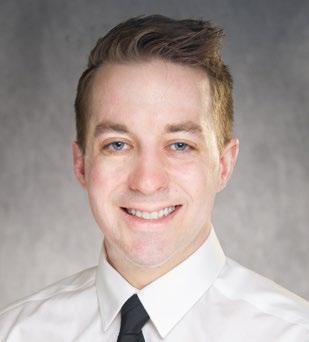
Dr. Heard completed his medical degree at the University of Iowa, Carver School of Medicine. He spent his first year of residency in general surgery at UC Davis and completed his residency in general surgery at University of Iowa Hospitals and Clinics. Dr. Heard completed a fellowship in burn and critical care at UC Davis. Dr. Heard is a member of the American College of Surgeons, the American Medical Association, and the American Burn As sociation.
Robert Kucejko, M.D., M. S., M.B.A. Assistant Professor, Colorect al Surgery
Dr. Kucejko completed his medical degree at UC Davis. He spent the first three years of his residency in general surgery at Drexel University College of Medicine/Hahnemann Hospital. During his residency, he trained as a research fellow in colon and rectal surgery at Drexel University College of Medicine/Hahnemann Hospital. He completed his residency at Thomas Jefferson University Hospital. Dr. Kucejko completed a fellowship in colon and rectal surgery at Lahey Hospital and Medicine Center. Dr. Kucejko is a member of the American College of Surgeons, the American Medical Association, the Society for Surgery of the Alimentary Tract, the Association for Academic Surgeons, and the American Society of Colon and Rectal Surgeons.
2022 ANNUAL REPORT FACULTY 9
Jennifer Lynde, D.O.
Assistant Professor, Trauma, Acute Care, and Critical Care Surgery
Dr. Lynde completed her medical training at the A.T. Still University School of Osteopathic Medicine in Arizona. She completed a residency in general surgery at Wright State University and a fellowship in trauma/surgical critical care at the University of Miami, Jackson Memorial Hospital in Florida. Dr. Lynde is a member of the American Association for the Surgery of Trauma, the American College of Surgeons, the Association of Women Surgeons, the American Medical Association, Panamerican Trauma Society, and the S ociety of Critical Care Medicine. She is double board certified in general surgery and surgical critical care by the American Board of Surgery and is an acti ve member of the United States A ir Force.
Miquell Miller, M .D., M.Sc.
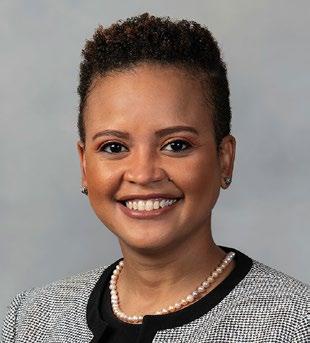
 Assistant Professor, Colorect al Surgery
Assistant Professor, Colorect al Surgery
Dr. Miller received her medical degree and completed a general surgery residency at Stanford University. She completed a fellowship in colorectal surgery at Brigham and Women’s Hospital. Dr. Miller is a member of the American College of Surgeons, the American Medical Association, the Society for Surgery of the Alimentary Tract, and the American Society of Colon and Rectal Surgeons.
Erik Noren, M.D., M.S. Assistant Professor, Colorect al Surgery

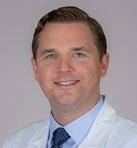
Dr. Noren completed his medical degree at Albany Medical College in New York and his residency in general surgery at Los Angeles County and the University of Southern California Medical Center. Dr. Noren completed a fellowship in anorectal physiology and clinical research at the University of Southern California, and a fellowship in colorectal surgery at the Los Angeles County and University of Southern California Medical Center. Dr. Noren comes to UC Davis from the University of Southern California, Keck School of Medicine where he was an assistant professor of clinical surgery. He is board certified in surgery by the American Board of Surgery. Dr. Noren is a member of the American College of Surgeons, the American Medical Association, the Society for Surgery of the Alimentary Tract, and the American Society of Colon and Rectal Surgeons.
Tim Pirolli, M.D. Associate Professor, Cardiac Surgery
Dr. Pirolli comes to UC Davis from the University of Texas Southwestern Medical Center/ Children’s Medical Center of Dallas where he was an associate professor of pediatric cardiothoracic surgery, associate residency program director, and the surgical director of the adult congenital heart disease program. Dr. Pirolli received his medical degree from the University of Pennsylvania School of Medicine and completed an integrated 6-year residency in cardiothoracic surgery at Stanford University and a fellowship in congenital heart surgery at Children’s Hospital of Philadelphia. He is a member of the Western Thoracic Surgical Association, the American Academy of Pediatrics, the American Heart Association, the American College of Cardiology, and the Society of Thoracic Surgeons.
UC DAVIS HEALTH DEPARTMENT OF SURGERY 10
New Faculty continued
Ian Powelson, M.D.
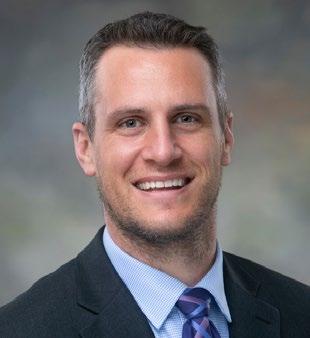


Assistant Professor, Plastic and Reconstructi ve Surgery
Dr. Powelson received his medical degree from the University of Michigan Medical School. He completed a general surgery preliminary residency at Dartmouth-Hitchcock Medical Center in Lebanon, NH, and a plastic surgery residency at The Johns Hopkins Hospital and Johns Hopkins Bayview Medical Center, Baltimore. Dr. Powelson completed two fellowships, a hand and upper extremity surgery fellowship, and a Burn Critical Care Fellowship both at Los Angeles County and the University of Southern California Medical Center. He is a member of the American Burn Association, the American College of Surgeons, the American Society of Plastic Surgeons, the American Association for Hand Surgery, and the American Society for Surgery of the Hand.
Anamaria Robles, M.D.
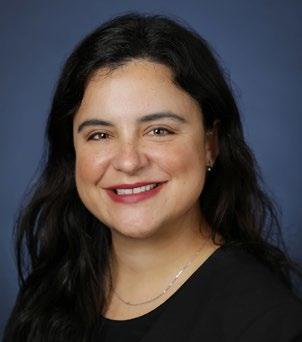
Assistant Professor, Trauma, Acute Care, and Critical Care Surgery
Dr. Robles completed her medical degree at UC San Francisco. She completed her residency in general surgery at UC San Francisco and a fellowship in surgical critical care, trauma & acute care at UC Davis. Dr. Robles is a member of the American College of Surgeons, American Association for the Surgery of Trauma, Eastern Association for the Surgery of Trauma, Association of Women Surgeons, and National Hispanic Medical Association. Her research interests include a focus on clinical outcomes and quality improvement in surgical critical care and the role of coagulation and inflammation after critical illness and injury.
Ara Salibian, M.D.
Assistant Professor, Plastic and Reconstructi ve Surgery
Dr. Salibian completed his medical degree at the University of California, Irvine. He then completed his residency in plastic surgery at the New York University
Hansjörg Wyss Department of Plastic Surgery and went on to complete a fellowship in microsurgery at the University of Southern California. Dr. Salibian will be serving as the director of the Breast Microsurgery program as well as director of the Center for Lymphatic Disease. His focuses include breast reconstruction, lymphedema surgery, limb salvage, general reconstructive surgery, and microsurgery. Dr. Salibian’s research interests include nipple-sparing mastectomy, outcomes after implant-based and microsurgical breast reconstruction, and advanced imaging techniques including ultrasound for microsurgery and lymphatic surgery.
Sawyer Smith, M. D., M.B.A.
Assistant Professor, Trauma, Acute Care, and Critical Care Surgery
Dr. Smith completed his medical degree and a residency in general surgery at Oregon Health & Science University. He completed a fellowship in trauma and surgical critical care at the University of Texas Health in San Antonio and an M.B.A. at Oregon Health & Science University. Dr. Smith is board certified by the American Board of Surgery and is a member of the American College of Surgeons and the Eastern Association for the Surgery of Trauma.
2022 ANNUAL REPORT FACULTY
11
Kathryn Stadeli, M. D., M.P.H.
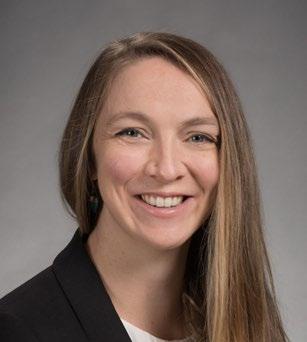 Assistant Professor, Trauma, Acute Care, and Critical Care Surgery
Assistant Professor, Trauma, Acute Care, and Critical Care Surgery
Dr. Stadeli completed her medical degree at UC San Diego. She completed her residency in general surgery at the University of Washington Medical Center and a fellowship in surgical critical care at the University of Washington and Harborview Medical Center. While at the University of Washington, Dr. Stadeli completed an M.P.H. with an emphasis on health services, global health. Dr. Stadeli is board certified in general surgery and is a member of the American College of Surgeons, Society of American Gastrointestinal and Endoscopic Surgeons, the Association of Women Surgeons, and the American Association for the Surgery of Trauma.
Ravi Sood, M.D., M.S.
Assistant Professor, Plastic and Reconstructi ve Surgery
Dr. Sood completed his medical degree at the University of Chicago Pritzker School of Medicine. He completed his residency in general surgery at the University of Washington and a residency in plastic and reconstructive surgery at Harvard University. Dr. Sood completed a hand and microvascular surgery fellowship and received a master of science in epidemiology at the University of Washington.
 James Taylor, M.B. B.Chir., M.P.H. Assistant Professor, Colorect al Surgery
James Taylor, M.B. B.Chir., M.P.H. Assistant Professor, Colorect al Surgery
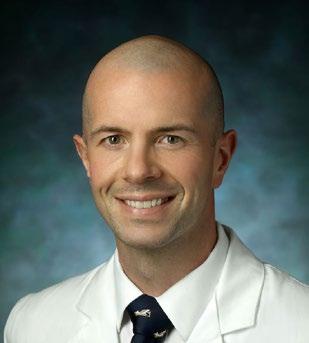
Dr. Taylor completed his medical degree at the University of Cambridge Clinical School in the United Kingdom. He completed his residency in general surgery at Johns Hopkins and a fellowship in colorectal surgery at Memorial Sloan Kettering and New York Presbyterian. He attended the New York University Global Health Institute of Public Health where he received his M.P.H. Dr. Taylor is a member of the Royal College of Surgeons of England and a candidate member of the American College of Surgeons and the American Society of Colon and Rectal Surgeons.
Michelle Zaldana-Flynn, M.D. Assistant Professor, Plastic and Reconstructi ve Surgery
Dr.Zaldana-Flynn completed medical school at the University of Pittsburgh School of Medicine and completed an internship in general surgery and a plastic surgery residency at UC San Diego. She completed a fellowship in complex reconstruction and microsurgery at Cedars Sinai Medical Center in Los Angeles. Dr. Zaldana-Flynn is Board Eligible with the American Board of Plastic Surgery and has a special clinical focus in both implant and tissue-based breast reconstruction following breast cancer.
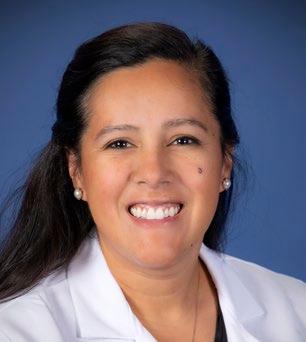
UC DAVIS HEALTH DEPARTMENT OF SURGERY 12
In memory of Charles Fredrick Frey, M.D.
Charles Fredrick Frey, M.D., a distinguished surgeon, pancreatophile, and emeritus professor at UC Davis Department of Surgery died February 7, 2022 at the age of 92. Dr. Frey lead a remarkable career which embodied a passion for teaching, a drive for creating innovative surgical techniques to improve patient outcomes, and numerous scientific contributions in the field of pancreatic research. Known around the world for his namesake “The Frey Procedure,” he is and will remain a legend in the field of the pancreas.
Charles Frederick Frey was born in New York City in 1929. He graduated from Amherst College in 1951 and attended Cornell University medical school to obtain an M.D. degree in 1955. In 1957, during his surgery training, he met and married Jane Tower, the sister of his best friend. He finished general surgery training at Cornell in 1963 during which time he completed two years in the United States Air Force as chief of surgery at Homestead Air Force Base.

From 1964 until 1976, he rose to Professor of Surgery at the University of Michigan and at that time enjoyed a productive experience working with C. Gardner Child. Here he began to understand the impact of the extended distal pancreatectomy (duodenum-sparing almost total pancreatectomy). It was during this time that he started his seminal work on understanding how to disable pain caused by chronic pancreatitis.

Distinguished surgeon,
In 1976, he joined the UC Davis Department of Surgery faculty where he established himself as a leader in the field by refining and extending the treatment of severe acute pancreatitis. In 1987, The Frey Procedure was published in the journal, Pancreas, as a new operation for chronic pancreatitis. The operation, featuring duodenal-preserving resection of the head of the pancreas combined with longitudinal pancreaticojejunostomy of the body and tail of the pancreas, continues to this day to be a popular surgical intervention used for chronic pancreatitis.
and emeritus professor of UC Davis Department of Surgery
In addition, Dr. Frey is well known as a founding member and chairman of the Pancreas Club and has published over 250 journal articles and presented over 350 lectures throughout the world. Dr. Frey and the Pancreas Club have become a household word among pancreatophiles. In 1997, Dr. Frey retired as Professor and Executive Vice Chairman of the Department of Surgery.
Truly a renaissance man, he never failed to inspire those around him with his passion for life and his work. We are honored to have a legacy like Dr. Frey as an emeritus faculty in our department and are thankful for his many contributions to UC Davis and the field of pancreatic science.
We are pleased to continue his lifelong dedication to understanding the pancreas through the Charles F. Frey, M.D. Lectureship. Through this lectureship, we welcome distinguished visiting surgeon scientists to present their research contributions in field of pancreatic science and honor the legacy created by Dr. Charles Frey.
pancreatophile,
2022 ANNUAL REPORT FACULTY 13
David T. Cooke, Division Chief, General Thoracic Surgery voted President-Elect of the Thoracic Surgery Directors Association
Chief of UC Davis Health’s Division of General Thoracic Surgery becomes first African American to hold the post

David Tom Cooke, M.D., F.A.C.S., chief of general thoracic surgery at UC Davis Health, was voted president-elect of the Thoracic Surgery Directors Association (TSDA) and assumed the position in 2021. Dr. Cooke becomes the first African American to hold the position and will transition to president of the 43-year-old organization in May 2023. His term runs until May 2025.

Prior to Cooke’s term as president-elect, he served as councilor on the TSDA Executive Committee, from May 2017 to May 2021. Cooke succeeds A.J. Carpenter, a UC Davis cardiothoracic surgery fellowship alumna, who is now with University of Texas Health.
The TSDA was established in 1978 as a membership organization for cardiothoracic surgery residency program directors. TSDA provides resources and networking opportunities for program directors and program coordinators, and supplemental curriculum materials and resources for general surgery and cardiothoracic surgery residents.
UC DAVIS HEALTH | DEPARTMENT OF SURGERY 14
Faculty News
Endowed Faculty
Richard Bold, M.D.
Isabelle J. McDonald Endowed Professor
Diana Farmer, M.D.
Pearl Stamps Stewart Endowed Chair
David Greenhalgh, M.D.
Helen Marian Bar t Endowed Professorship in Burn Care
Hung Sy Ho, M.D.
Earl Wolfman Jr Endowed Professorship
Gregory J. Jurkovich, M.D.
Donant Endowed Chair in Trauma Medicine and Trauma Research
Matthew Mell, M.D.
Pearl Stamps Stewart Endowed Professor
New Elected Fellows of American College of Surgeons
Shushmita A hmed, M.D.
Erin B rown, M.D.
Jorge Catrip, M.D.
Claire Graves, M.D.
Naeem Goussous, M.D.
Mimmie Kwong, M.D.
Victoria Lyo, M.D.
Steven Maximus, M.D.
Neal Mineyev, M.D.
Rachel Russo, M.D.
Minna W ieck, M.D.
Richard Bold, M.D., F.A.C.S., was selected as one of four “state chairs” in the country by the American College of Surgeons Commission on Cancer (CoC) for his outstanding service to cancer care. As a State Chair and ACS Commission on Cancer Liaison Physician (CLP) for the UC Davis Comprehensive Cancer Center, Bold received the State Chair Outstanding Performance Award for going above and beyond the scope of regular duties.
Erin Brown, M.D., F.A.C.S., was selected as one of 10 UC Davis early career faculty members to receive a School of Medicine Funding Award. The award entitled: A Novel Program to Identify, Support and Retain Biomedical Researchers Impacted by Pandemic Caregiving Challenges is supported by the Doris Duke Charitable Foundation and its funding partner the Burroughs Wellcome Fund with matching support from the UC Davis School of Medicine, Academic Personnel, and the MIND Institute. This special 15-month funding award seeks to support the advancement of promising research by early-career faculty whose productivity is challenged by increased family caregiving responsibilities brought about by COVID-19. Dr. Brown will use this generous award to support her research on developing novel treatment methods for pediatric cancer patients, particularly neuroblastoma. Dr. Brown was also recognized by the Association of Women Surgeons as one of 40 under 40.
Lisa Brown, M.D., M.A.S., received the 2022 Thoracic Surgery Foundation’s Research Award for her investigation of “Pain, Opioid Use, and Health-Related Quality of Life After Thoracic Surgery.”
Rachael Callcut, M.D., M.S.P.H., F.A.C.S., was voted in as vice chair Board Member to the Coalition for National Trauma Research (CNTR) serving in the role vice chair. She assumed this role in July 2022. She has also been named the associate dean for data science and innovation for UC Dav is Health.
David T. Cooke, M.D., F.A.C.S., was voted president-elect of the Thoracic Surgery Directors Association (TSDA) and assumed the position on May 1, 2021. Cooke becomes the first African American to hold the position and will transition to president of the 43-year-old organization in May 2023. His term will run until May 2025. He has been elected a Fellow of the American Surgical Association (ASA), the oldest surgical association in the United States. Cooke was officially elected during the ASA annual meeting in Chicago.
Bethany Cummings, D.V.M., Ph.D., was recognized by the Sacramento Business Journal 40 under 40 for leaders in research and innovation.
Diana Farmer, M.D., F.A.C.S., F.R.C.S., has been named president of the American Surgical Association (ASA). She was sworn in as president at the organization’s annual meeting held in Chicago on April 8th. Farmer is the first surgical leader from UC Davis Health named to the position and only the third woman elected to hold the title of president in the ASA’s 142-year history.
Gregory (Jerry) Jurkovich, M.D., F.A.C.S., was elected the new Chief of Staff for UC Davis Health for the 2022–2024 term.
Bob Kiaii, M.D., F.R.C.S.C., F.A.C.S., completed his presidency term of the International Society for Minimally Invasive Cardiothoracic Surgery.
2022 ANNUAL REPORT FACULTY 15
Jonathan Kohler, M.D., M.A., was selected by the Children’s Miracle Network to develop best practices in acute care for autistic patients and create outreach programs using social media and podcasts. He will also serve as the inaugural chair of the new Access to Surgery for Kids (ASK APSA) Committee of the American Pediatric Surgical Association. He is also overseeing the Surgical Infection Society podcast: buginyourear.podbean.com.
Nasim Hedayati, M.D., M.A.S., F.A.C.S., R.P.V.I., was elected as a Distinguished Fellow of the Society for Vascular Surgery.
Kent Lloyd, D.V.M., Ph.D., was appointed to his second term to the prestigious NIH Council of Councils, with his previous tenure spanning from 2011 to 2014. Lloyd’s appointment to the council begins in 2022 and runs through October 2027.
Victoria Lyo, M.D., M.T.M., F.A.C.S., was appointed the Dean’s Scholar in Women’s Health Research by the UC Davis Building Interdisciplinary Research Careers in Women’s Health (BIRCWH) program. This fiveyear mentored research award will allow Lyo to further research Sex Differences in Response to Bariatric Surgery. She is studying how microbiome and metabolomic differences may contribute to sex-specific outcomes of surgery.
Tina Palmieri, M.D., F.A.C.S., has earned the title “Master of Critical Care Medicine,” the highest honor bestowed by the Society of Critical Care Medicine.
Rachel Russo, M.D., received a Congressional “2022 Women of the Year” award, honoring leadership and vision in health care in the state of California. She was also selected as one of 30 members to serve a two-year role as “Future Trauma Leaders” by The Committee O n Trauma.
Kathleen Romanowski, M.D., F.A.C.S., has been appointed Chair of Committee on Technology and Communications for the As sociation of Academic Surgery.
Candice Sauder, M.D., M.Ed., F.A.C.S., was selected as one of 10 UC Davis early career faculty members to receive a School of Medicine Funding Award. The award entitled: A Novel Program to Identify, Support and Retain Biomedical Researchers Impacted by Pandemic Caregiving Challenges is supported by the Doris Duke Charitable Foundation and its funding partner the Burroughs Wellcome Fund, with matching support from the UC Davis School of Medicine, Academic Personnel, and the MIND Institute. This special 15-month funding award seeks to support the advancement of promising research by early-career faculty whose productivity is challenged by increased family caregiving responsibilities brought about by COVID-19. Dr. Sauder will use this generous award to support her work examining long-term breast cancer outcomes among diverse California populations.
Minna Wieck, M.D., F.A.C.S., has been elected a Fellow of the American Pediatric Surgery As sociation.
Shinjiro Hirose, M.D., F.A.C.S., and Diana Farmer, M.D., F.A.C.S., F.R.C.S., served as co-presidents and hosts of the 40 th annual meeting of the International Fetal Medicine and Surgery Society (IFMSS) in November in Mexico.
UC Davis Health Diamond Docs Award Winners
This program celebrates physicians recognized by their patients for extraordinary adult inpatient care demonstrated by careful listening, clear explanations, and respectful partnerships. We are pleased to welcome these new members:
CARDIAC SURGERY
Bob Kiaii, M.D.
CARDIOTHORACIC SURGERY
Lisa B rown, M.D.
Luis G odoy, M.D.
FOREGUT AND ENDOMETABOLIC SURGERY
Mohamed Ali, M.D.
Hung Ho, M.D.
Hazem Shamseddeen, M.D.
PEDIATRIC SURGERY
Jonathan Kohler, M.D.
TRANSPLANT SURGERY
Naeem Goussous, M.D.
Richard Perez, M.D.
Peter Than, M.D.
TRAUMA SURGERY
John Anderson, M.D.
Ian B rown, M.D.
Christine Cocanour, M.D.
Eleanor Curtis, M.D.
Ho Phan, M.D.
Anamaria Robles, M.D.
Edgardo Salcedo, M.D.
David Shatz, M.D.
Garth Utter, M.D.
VASCULAR SURGERY
Misty Humphries, M.D.
Steven Maximus, M.D.
UC DAVIS HEALTH DEPARTMENT OF SURGERY 16
Clinical Care
performed separately. The reduced risk achieved by combining approaches allows UC Davis Health to accommodate more patients who:
■ aren’t suitable for complete stenting due to location and extent of the narrowing and the patient’s anatomy, and
■ aren’t suitable for conventional coronary bypass because of high-risk characteristics making the patient not suitable for conventional surgery.
“We’ve done at least five or six cases in the last few months, and all have had great outcome,” Dr. Kiaii said in September of the hybrid procedure. “It’s a new strategy of revascularization for UC Davis that we think will be very beneficial here, because we are referred a large volume of very-high-risk patients that aren’t accepted by other institutions.
“Patients who haven’t had an option in the past for getting treatment for their blocked arteries now have this option and can be treated.”
Outcomes studied
Continuing to add advanced cardiac surgery options

Under the leadership of Bob Kiaii, M.D., F.R.C.S.C., F.A.C.S., the Division of Cardiac Surgery continues to offer the region new robotic-assisted procedures that reduce recovery times for all patients and create more possibilities for higher-risk patients.
The latest such addition is a hybrid off-pump roboticassisted coronary artery bypass graft (CABG), which combines two different procedures to clear arterial blockages — a minimally invasive “beating heart” coronary bypass surgery, and an angioplasty with stent placement — during the same admission and eventually the same anesthesia.
The procedure, rare in Northern California, opens possibilities for patients who may not qualify for more traditional multi-vessel bypass or stenting procedures
Performing CABG without a heart-lung machine can reduce risk of side effects such as inflammation and rhythm problems, Dr. Kiaii said, and potentially reduce recovery period and hospital stay. Using a minimally invasive robotic approach also avoids large incisions and added trauma, further enhancing prospects for faster recovery. In the past, he said results have demonstrated that patients undergoing off-pump hybrid procedures can have their length of hospital stay reduced by half.
Dr. Kiaii performed his — and North America’s — first hybrid off-pump robotic-assisted CABG procedure in 2004 at Western University’s London Health Sciences Centre in Ontario, Canada. In the years following, his team there performed numerous other such procedures, and also published effectiveness research in journals such as the Journal of Cardiothoracic and Vascular Surgery and the Annals of Thoracic Surgery evaluating the procedure against more traditional off- and on-pump bypass.
“Now after a decade we have very good results in patients, who have undergone this combined procedure, in terms of quality of life, requirement of additional interventions, and survival rate,” Dr. Kiaii said. “The (combined) procedure is becoming more acceptable worldwide, because there’s more evidence in the literature that this procedure results in good outcomes and an alternative modality of revascularization.”
2022 ANNUAL REPORT CLINICAL CARE
17
Pioneering procedures
Dr. Kiaii joined the UC Davis Department of Surgery in 2019 and is known internationally as a leader in pioneering minimally invasive and robotic cardiac procedures. He performed a number of additional pioneering operations before arriving at UC Davis from Western University, including the world’s first robotic-assisted surgeries for aortic valve replacement for aortic valve stenosis, right atrial perforation repair, and left atrial appendage ligation for atrial fibrillation.
In 2020, Dr. Kiaii performed Northern California’s first robotic mitral valve repair at UC Davis Health. Since then, the team has performed several other robotic mitral procedures. Under his tenure UC Davis Health has also been designated as California’s first training center for the American Association for Thoracic Surgery (AATS) Foundation’s Cardiac Surgical Robotics Program. Under the leadership of Kiaii and cardiac surgeon Jorge Catrip, M.D., F.A.C.S., surgeons from across the country will come to UC Davis Health to learn techniques to master the fundamentals of robotic mitral valve surgery.
Teaming
with cardiology
Dr. Kiaii said he’s able to adopt advanced robotic procedures at UC Davis Health because of interest and teamwork among colleagues in his Division of Cardiac Surgery and among cardiology partners in UC Davis Health’s Division of Cardiovascular Medicine. “We have the robotic technologies and individuals’ skills and abilities, and our cardiology colleagues have embraced the approach,” he said.
Kiaii focused on the value of team ethic and coaching in his outgoing address as president of the International Society of Minimally Invasive Cardiothoracic Surgery (ISMICS) this summer. “Instead of working in silos in heart intervention, it’s best to work together and provide all the modalities so the team has the trust in each other,” he said. “Delivery of care is best done as a team.”
At a Glance
12 clinical divisions
5,043 total transplants since 1988
American C ollege of Surgeons designations:
Level I Adult Trauma Center
Level I Children’s Surgery Center
Level I Pediatric Trauma Center Commission on Cancer, National Accreditation Program for Rec tal Cancer
U.S. News & World Report
nationally ranked:
Cancer Care
Cardiology & Heart Surgery
Pulmonology & Lung Surgery
U.S. News & World Report high-p erforming:
Gastroenterology & GI Surgery
Colon Cancer Surgery
Lung Cancer Surgery
Heart Failure Care
Kidney Failure
Transcatheter Aortic Valve Replacement (TAVR)
UC DAVIS HEALTH DEPARTMENT OF SURGERY 18
A hybrid offpump roboticassisted CABG is the newest less-invasive heart procedure introduced at UC Davis Health
Novel surgery provides better muscle control, improved sensory feedback and less limb pain
An interdisciplinary team of UC Davis scientists and plastic and reconstructive surgeons has collaborated to help improve quality of life for patients with upper limb amputations. They are utilizing a novel amputation surgical procedure and smart prosthetics to help patients better control their residual muscles, receive sensory feedback and reduce limb pain. The surgical procedure, known as Targeted Muscle Reinnervation, transfers residual nerves from an amputated limb into a new muscle, allowing patients to move their prosthetic arm by simply thinking what movements they wish to accomplish.
“This endeavor requires a multidisciplinary approach,” said Clifford Pereira, M.D., F.A.C.S., F.R.C.S., associate professor of plastic and reconstructive surgery. “Our work is improving the quality of life for these patients, not only through the use of new prosthetics, but by alleviating the pain they experience.”
The team at UC Davis includes a core group of specialized surgeons, mechanical engineers, neuroscientists, orthotists, and prosthetists.
In most amputations, nerves and muscles that control the affected joints, such as elbows or ankles, are severed. By reconnecting the nerves the new procedure allows them to retain their normal push-pull relationship, which provides patients opportunities to control prostheses and potentially feel them too.
“By reassigning these existing nerves, we’ve been able to make it possible for patients to retain their nerve functions from the amputated limb that otherwise would have lost their function,” Dr. Pereira explained. “This process then allows patients to control a what’s called a smart prosthetic device by merely thinking about the action they want to perform, albeit by activating different muscles that have been reinnervated.”
In addition to allowing patients to use smart prosthetics, targeted
“Our work is improving the quality of life for these patients, not only through the use of new prosthetics, but by alleviating the pain they experience.”
Clifford T. Pereira
Targeted Muscle Reinnervation procedure
Drs. Pereira and Andrew I. Li, M.D., assistant professor of plastic and reconstructive surgery, have teamed up to perform the first Targeted Muscle Reinnervation procedures at UC Davis Health. The surgery connects the nerves that are cut during amputations to the muscles that remain. This allows them to communicate dynamically with each other. The procedure allows the signals that the brain once used to control the now-missing hand new muscles to operate.
muscle reinnervation can be used to treat pain from phantom limb and neuromas, a painful formation of scar tissue at the end of a nerve. By creating a pathway for the nerves in the reinnervated muscle, it is less likely that they will develop painful scar tissue, a common problem for patients who have had amputations.
“It has become increasingly apparent that restoring the muscles to their normal physiology has benefits not only for prosthetic control, but also for a patient’s day-to-day mental well-being,” Dr. Li said.
2022 ANNUAL REPORT CLINICAL CARE
19
Drs. Pereira and Li are hopeful the decrease of chronic pain and phantom pain from the procedure will lower the dependence on opioids in the amputee patient population.
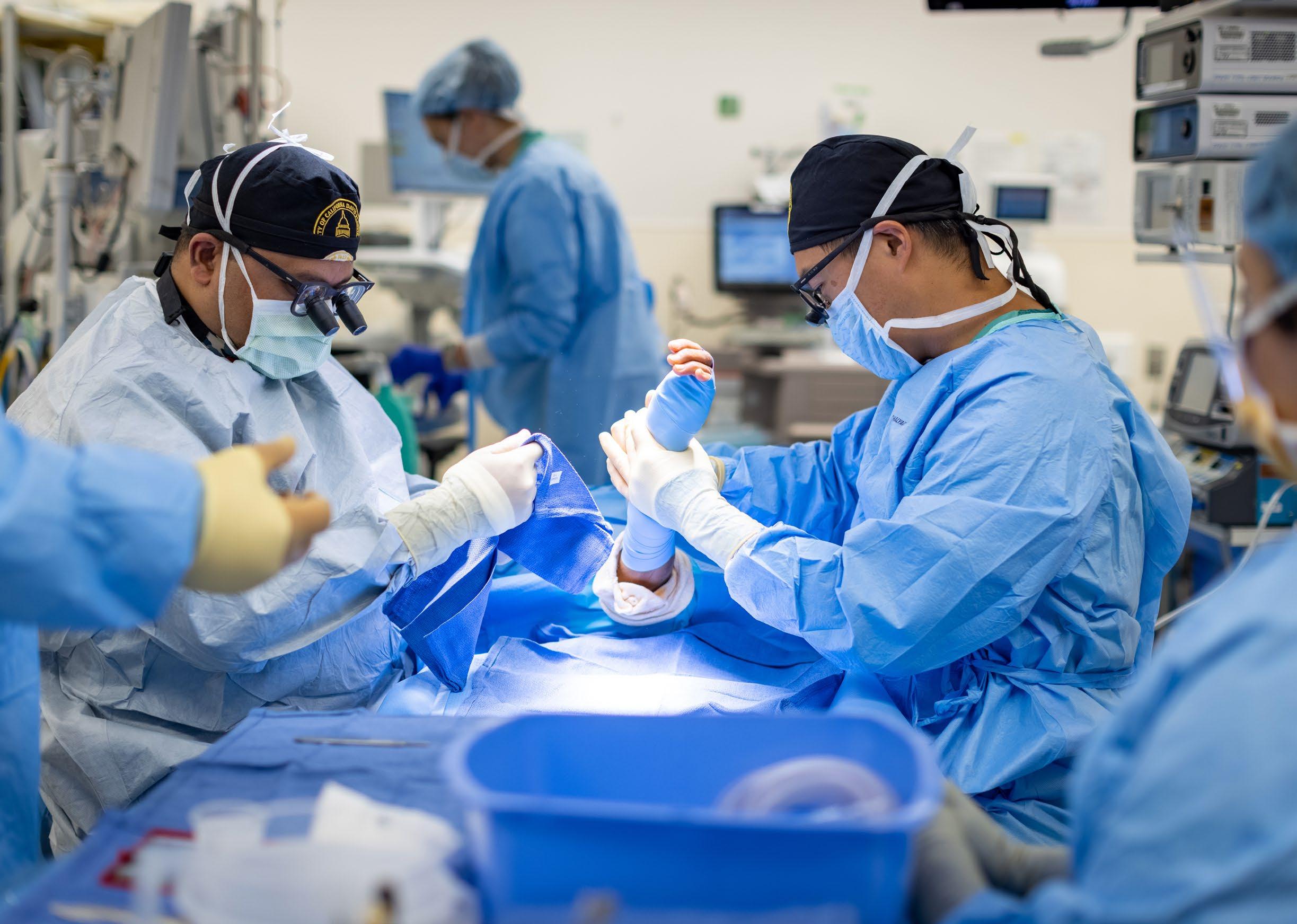
Developing smart prosthetics
A smart prosthetic can read the user’s intentions from the newly rewired nerves and the muscles they activate. To develop one, scientists in the departments of engineering and neurology at UC Davis are utilizing artificial intelligence to measure patterns of muscle contractions using ultrasound and electromyography (EMG). They are developing a process using ultrasound and electromyography (EMG) to detect the reconnected nerve
signals based on muscle contractions. The data is then interpreted by artificial intelligence software, which decodes the intended motions of the hands and fingers. The new technique offers advantages over the typical process of using surface electrodes, which can also pick up electrical charges from other muscles. The interface is a lot more intuitive, where a patient can just think about opening and closing their hand, as opposed to trying to correlate another movement to operate their hands, allowing the prosthesis to adapt to individual patients, rather than the old way of patients adapting to the prosthesis.
Benefits of an interdisciplinary collaboration
Developing an innovative prosthesis system for patients with amputations is a challenge that a surgeon, neuroscientist, or engineer could not solve individually. However, at UC Davis we are one of the few academic institutions with a strong health care system, engineering school, and neuroscience community providing us with the interdisciplinary assets to meet the challenge.
OF SURGERY 20
UC DAVIS HEALTH DEPARTMENT
New initiative to make UC Davis a leader in organ transplant equity
UC Davis has launched a new initiative to improve the organ transplantation system throughout California and work toward equity in organ donation.

The initiative is called “Pluralist,” which stands for “patient-centered precision digital health education.”
Pluralist hopes to increase the availability of donor organs and access to life-saving surgery regardless of a patient’s socioeconomic standing. It will achieve this by developing scalable health education interventions that will be delivered by culturally competent health care providers.
Many members of our historically underserved communities are less likely to be placed on transplant waitlists and have had a lower likelihood of transplantation. Addressing this problem requires a multidisciplinary approach that challenges traditional interventions, which are currently falling short. We plan to leverage technology and social power to create a movement for better health that will reduce health disparities in organ transplantation throughout California.
This initiative will help identify potential system-wide improvements that would increase organ donations and advance equity in organ donation and transplantation.
Using a patient-centered precision approach, Pluralist combines data and artificial intelligence to learn about the needs of the community and tailor proper education intervention using social networks and digital media to create greater organ donation awareness. Patient testimonials and interviews will be used to create educational content that will be shared among targeted communities throughout California to urge people to become donors, especially within communities of color.
The program anticipates reaching more than 22 million Californians over a two-year period with at least 70% from targeted racial and ethnic minorities, low-income groups, and rural area residents, as identified by the United States Census.
The Pluralist initiative is largely funded through a contribution by CareDX who supports UC Davis Health in reducing health disparities in organ transplantation.
“At CareDx we have become the leading company in the transplant space through a commitment to innovating intelligent solutions that improve every patient’s journey through the transplantation process, regardless of race or socioeconomic status, and we chose to become the leading contributor to UC Davis Health’s Pluralist program because it shares the same mission and goals,” said Reg Seeto, CEO and president of CareDx. “Pluralist’s focus on the targeted patient, data and digital technology to achieve equality in organ donation, also aligns with CareDx’s efforts to educate and assist patients with digital offerings.”
The Pluralist Program is the latest initiative from UC Davis Health to provide a multidisciplinary approach to all organ transplant patients. The UC Davis Transplant Center performs transplants of the kidney, kidney-pancreas, and isolated pancreas, and will start other solid organ transplants in 2023. Recently, the Kidney Transplant Program at the Medical Center ranked No. 7 in the country for total volume of kidney transplants and No. 1 in California for total number of deceased donor kidney transplants.
“We are committed to leading the effort in health equity in the transplant space and delivering comprehensive care to help our patients achieve their best possible outcome,” said Richard Perez, M.D., F.A.C.S., chief of transplant surgery and medical director for the UC Davis Health Transplant Center. “The Pluralist Program will increase organ donations, improve transplants and enhance the quality of care for transplant patients throughout California.”
2022 ANNUAL REPORT CLINICAL CARE 21
UC Davis performs first ‘scarless’ thyroidectomy in Central Valley
UC Davis endocrine surgeons performed the first “scarless” thyroidectomy in California’s Central Valley. Claire E. Graves, M.D., F.A.C.S., and Michael Campbell, M.D., F.A.C.S., performed the procedure using a technique known as a transoral thyroidectomy. It was pioneered in Thailand in 2014 and has spread to a handful of medical centers in the United States.
The transoral thyroidectomy allows surgeons to remove a patient’s thyroid without leaving a surgical scar on the neck of the patient. This surgical technique requires three small incisions inside the lower lip. Through these incisions, the surgeon places endoscopic instruments between the jaw and the skin to remove the thyroid gland, which is a short distance from the incision site. The procedure
leaves no visible surgical scar on the neck of the patient.
The technique is limited by the size of gland that can be removed through the lip without discomfort at the chin. A modification of the technique also uses a small incision just under the chin. This “submental” incision is hidden from view but shortens the path from the incision to the thyroid gland to decrease surgical trauma.
“The transoral thyroidectomy, as well as the transoral and submental approach, were developed due to increased interest from patients to minimize the visible evidence of surgery,” Dr. Graves explained. “For many patients, a scar on the front of the neck affects whether or not they
want to pursue surgery. Patients are often concerned about how it will affect their quality of life.”

Traditionally, surgeons remove the thyroid gland using a small horizontal incision in the center of the neck. The scar size depends on the size of the gland, with the average being 4 to 6 centimeters long.
“People don’t look into the deeper understanding of what that cosmetic value actually is for patients,” said Dr. Campbell. “This procedure has a patient-centered value as a scar on the front of the neck is not only a health privacy issue, but it’s a constant reminder for a patient that they had surgery. If it was for cancer, then it’s a constant reminder that they had cancer. This procedure offers our patients another option that they have not previously had.”
The main benefit of a transoral thyroidectomy is the lack of scarring. Data show the procedure is as effective as the traditional, through-theneck route.
UC DAVIS HEALTH DEPARTMENT OF SURGERY 22
According to the American College of Gastroenterology, approximately 60 million Americans struggle with heartburn or GERD at least once a month, and about 15 million experience heartburn daily. Though medications and dietary/lifestyle changes are often first-line treatment for GERD, doctors often start medications empirically without accurate diagnoses. Additionally, minimally invasive anti-reflux surgery is an effective and underutilized treatment for GERD. In response to this growing need for GERD and esophageal disease diagnostics, the Division of Foregut, Metabolic, and General Surgery launched a new Surgery Foregut & Esophageal Motility Center. With the addition of this Center, surgeons in the Division can provide comprehensive diagnostic and treatment options for GERD, hiatal hernias, achalasia, and other esophageal motility and swallowing disorders.
“These conditions are quite common, and here at UC Davis, we want to ensure our patients have access to the latest technology
and care under one coordinated Center,” said Mohamed Ali, M.D., F.A.C.S., division chief of foregut, metabolic, and general surgery. “Despite being common, esophageal issues are complex and often misdiagnosed. Assessments and treatments must utilize the best available data techniques and technology available. It is paramount that our patients at UC Davis have local access to highly-skilled specialists and surgeons with advanced education and training specifically in treating esophageal conditions.”
Advanced treatment for GERD, hiatal hernia, achalasia & more The new Surgery Foregut & Esophageal Motility Center features state-of-the-art high-resolution esophageal manometry. This technology has improved the sensitivity for detecting esophageal motility disorders including impaired motility associated with GERD and achalasia. The center also offers 24-hour pH with Impedance testing to directly measure the severity of acid reflux,
along with upper endoscopy performed by our surgeons. This diagnostic center is led by Victoria Lyo, M.D., M.T.M., F.A.C.S., assistant professor of surgery specializing in minimally invasive foregut-surgery. Expert surgeons in the Division of Foregut, Metabolic, and General Surgery can utilize the diagnostic information to provide treatment options for GERD and other esophageal conditions, including medication optimization, dietary and lifestyle education by our multidisciplinary team, and a range of minimally-invasive antireflux operations, endoscopic procedures, and surgical options for achalasia.
“We are excited to be a comprehensive center for our patients and offer them both testing, dietary education, and surgical options under one roof.
We are streamlining our care so that patients can get much of their testing done by the time they see surgeons, thus improving workflow and shortening time to surgery. Our esophageal and motility team has extensive training and is excellent at making the testing procedures as comfortable as possible for patients,” notes Dr. Lyo.

2022 ANNUAL REPORT CLINICAL CARE
Division of Foregut, Metabolic and General Surgery launches a new Surgery Foregut & Esophageal Motility Center
“Despite being common, esophageal issues are complex and often misdiagnosed. Assessments and treatments must utilize the best available data techniques and technology available.”
23
Mohamed Ali
Abdominal aortic aneurysm surveillance program launches
UC Davis began working with Illuminate early last fall to lay the groundwork for developing a robust, centralized, abdominal aortic aneurysm (AAA) surveillance program with the following goals in mind:
1. Identify and re-engage with patients already in the UC Davis EMR who may have been “lost-tofollow-up” either due to COVID or other factors.
2. Empower the PCPs to manage their AAA patients with small aneurysms.
3. Streamline the process of vascular surgery referrals for AAA.
4. Decrease the risk of rupture by offering AAA repair to appropriate patients.
In the six months since the program started, the effort has identified over 10,000 patients with some mention of AAA who could benefit from our surveillance program. Over 9,000 patients have been reviewed and 1,274 patients who were lost to care are now under active surveillance and management by nurse navigators.
Surveillance review is being coordinated with Meredith Hickerson, B.S.N., R.N., C.C.R.N.-K., and Charlene Gist, B.S.N., R.N., C.V.-B.C., C.C.R.N.-K., from the Illuminate team. These expertly trained nurses have been actively calling identified patients and contacting their primary care physicians to explain the program and the process, educate patients about the importance of follow-up and ongoing surveillance, and acting as a resource to patients who have additional questions. As a result of these efforts 40 patients have visited our clinic which has resulted in 83 diagnostic imaging studies, one diagnostic angiogram, and four life-saving AAA surgical procedures! This is but one example of how the UC Davis Heart and Vascular Center is using technology to partner with the primary care community to improve patient care.
Providing easily accessible and understandable patient education videos on social media
Caregivers for kids with complex medical conditions have to become familiar with a wide variety of medical procedures that can be done at home — with the right training. But becoming comfortable with medical devices and procedures at home can be daunting. Jonathan Kohler, M.D., M.A., and his team in the Division of Pediatric Surgery, including Junior Specialist Taylor Silva, Nurse Practitioners Robyn Lao and Lauren Bates, and Nurse Andrea Reich, are providing patients, their parents, and other caregivers with easily accessible and understandable, bite-sized videos that illustrate common home-based medical procedures like surgical drain management and rectal irrigations. They avoid the gory pictures common on YouTube, instead using a variety of fun fruits to illustrate procedures and after-care with easyto-follow instructions. “We created this project because we recognized a real need for patients and their families to have easy access to simple tutorials they can access on their schedule,” Dr. Kohler said. “Through the creation of these parent and patient-orientated educational videos, we hope to create approachable and easily understandable information for patients and families worldwide.” The educational videos can be found on our YouTube channel youtube. com/c/UCDavisDepartmentofSurgery

Answering the call for increased diversity, inclusion, and representation in medical literature
Our General Thoracic Surgery team and CT Surgery residents Sarah Chen (PGY3) and Devon Anderson, M.D., (PGY2) are answering the call for increased diversity, inclusion, and representation in medical literature with their recent inclusion of representation in medical illustrations and featuring medical illustrations of African American patients. The illustrations were featured in a recent JAMA Surgery journal article entitled: Comprehensive Review of Chest Tube Management: A Review.
UC DAVIS HEALTH DEPARTMENT OF SURGERY 24
#4 2022 ANNUAL REPORT | RESEARCH
21 st ranking for surgery per Blue Ridge Institute for Medical Research
Surgical research is a cornerstone of UC Davis Surgery. Our history is rich in discovery and improved surgical outcomes. We remain one of the top-ranked surgical departments on the West Coast and nationally for our robust research activity.
Faculty members in the Department of Surgery conduct hundreds of clinical trials each year and publish annually in peer-reviewed journals, disseminating key findings and insights far beyond Northern California.
As a department within a major academic medical center, the Department of Surgery is able to leverage clinical and research resources to allow patients to access leadingedge treatments and participate in a broad spectrum of clinical trials. Our faculty members bring pioneering research discoveries from the lab to clinical practice through the pursuit of the latest advances in basic and translational research. Unique among surgical departments, we are home to four distinct research areas: Basic Science, Clinical Science, Clinical Trials, and Translational Research, Innovation, and Entrepreneurship.
grants
million
At a Glance Research
In the UC system #5 in Western States 4 research divisions 71 research staff 48 principal investigators 12 research residents 93 active
and contracts 14
From surgical firsts like conducting the world’s first clinical trial using stem cells in utero to repair Myelomeningocele to inventing innovative surgical techniques like “The Frey Procedure” used around the globe to treat chronic pancreatitis, the UC Davis Department of Surgery continues to be at the forefront of basic, translational, and clinical research, all aimed at improving surgical outcomes and patient health. annual research funding
25
Research A Leader in Investigation and Innovation

UC DAVIS HEALTH DEPARTMENT OF SURGERY 26
Research
Basic Science Research Highlights

C-section effects on the gut microbiome of offspring: Sean Adams, Ph.D., an investigator in the Center for Alimentary and Metabolic Science, collaborated with scientists at the Arkansas Children’s Nutrition Center to characterize how birth mode impacts the gut microbiome in the controlled setting of a mouse model. Limited differences were noted, suggesting that most reported birth mode microbiome differences in humans and animals stem from variables other than C-section. However, the investigators did find that C-section led to higher abundance of a bacteria implicated in bile acid metabolism and regulation of glucocorticoid conversion to androgens, suggesting that birth mode can in fact influence metabolites produced in the gut that are important to offspring physiology and health.
Transcriptome analysis of tumor-infiltrating lymphocytes identifies NK cell gene signatures associated with lymphocyte infiltration and survival in soft tissue sarcomas: Robert Canter, M.D., assessed purified immune cells (natural killer [NK] and T cells) from STS tumors and the blood to determine if gene expression signatures could be identified that distinguish NK and T cells from inside the tumor (intra-tumoral) from those in the blood. These patterns were then correlated with survival outcomes. The data indicated that intra-tumoral NK cells exhibit a unique transcriptional profile that is distinct from both circulating NK counterparts as well as from intra-tumoral T cells. In addition, there were distinct profiles in cells derived from tumors with high versus low immune infiltrates: e.g., NK expression of TLR4 and STMN1 appeared to drive immune cell tumor infiltration. This new discovery suggests that these genes can be targeted to improve immunotherapy responses in STS cancers, by encouraging the body’s immune system to infiltrate these tumors more effectively.
2022 ANNUAL REPORT | RESEARCH
27
Sparking gut bacteria production of bioactive xenolipids: Sean Adams, Ph.D., and postdoctoral fellow Dr. Jean Debédat, are leveraging a nutritional approach to define how intestinal bacteria generate fat-derived signals that regulate the body’s metabolism. The investigators envision that these sorts of approaches will prove useful in many areas including prevention or treatment of diabetes and obesity, and could be considered in future clinical applications of culinary medicine in surgery, cancer, and other areas.
14-3-3-zeta mediates GLP-1 receptor agonist action to alter α cell proglucagon processing: Bethany Cummings, D.V.M., Ph.D., has explored a new angle on pancreatic islet function. The research team has illuminated a complex mechanism associated with type 2 diabetes and may have discovered a promising therapeutic target in the process. The study found that the signaling protein 14-3-3-zeta can tell pancreatic alpha cells to produce the antidiabetic hormone GLP-1.
Inhaled recombinant human IL-15 in dogs with naturally occurring pulmonary metastases from osteosarcoma or melanoma: a phase 1 study of clinical activity and correlates of response: (DOI: 10.1136/jitc-2022-004493). A team led by Robert Canter, M.D., performed a phase I clinical trial of inhaled recombinant human (rh) IL-15 in dogs with gross pulmonary metastases from melanoma or osteosarcoma. Using 50 µg inhaled twice daily over 14 days, 18 evaluable dog patients, there was an objective response rate of 11%, including one complete response (CR) that lasted >1 year and a clinical benefit rate of 39%. Immune correlative assays demonstrated immune activation in the blood of treated dogs and correlation of ex vivo peripheral blood cytotoxicity assays with survival. This study provided critical data for further development of anti-cancer treatments helpful in a veterinary setting and provide new insights relevant to potential human applications for inhaled therapeutics in cancer.
Clinical Trials Selected Studies
The Department of Surgery is at the forefront of surgical research aimed at improving patients’ lives. Many of our faculty members are involved with clinical trials each year. As a department within a major academic medical center, the Department of Surgery is uniquely positioned to leverage the resources of both the UC Davis main campus and the health campus, which provides patients access to innovative treatments and participation in a broad spectrum of clinical trials. Our clinical trials program continues to expand in terms of depth, scope, and funding. With more than $20 million in clinical trials funding, we have studies ranging from randomized prospective trials of stem cell therapies to leading-edge technology in artificial skin, resuscitation, and the impact of exercise programs on outcomes. Funding sources include the National Institutes of Health, the Department of Defense, and the California Institute of Regenerative Medicine.
STAT: Standard Therapy Plus Active Therapy to Improve Mobility, Long-Term Activity, and Quality of Life for Severely Burn-Injured Patients
After Skin Graft Surgery: Soman Sen, M.D., is assessing the efficacy of STAT, an activity-based therapy protocol compared to standard therapy (ST) to improve functional outcome and reduce disability in patients recovering from burn injury. This randomized multi-center trial is designed with two parallel treatment groups: STAT and ST. The efficacy of the STAT protocol will be determined through comparison to the ST-only group.
The UCD-DGMC TBI Precision Medicine Network for Complex Trauma: Tina Palmieri, M.D., is overseeing an observational study to assess metabolomic, genomic, and proteomic biomarkers related to clinical outcomes in patients with traumatic injury. This study combines many of the singular programs at UC Davis: burns, neurocritical care, neurosurgery, trauma, metabolomics, genomics, proteomic, and pathology. Target populations include patients admitted with Traumatic Brain Injury (TBI), TBI plus polytrauma, TBI plus burn injury, and burn injury alone.
UC DAVIS HEALTH DEPARTMENT OF SURGERY
28
The CuRe Trial: Cellular Therapy for In Utero Myelomeningocele Repair: Diana Farmer, M.D., Shinjiro Hirose, M.D., and Aijun Wang, Ph.D., are in year two of the groundbreaking clinical trial research using Placental Mesenchymal Stem Cells (PMSCs) to investigate if adding stem cells during the fetal MMC repair will help children walk and control their bowel movements and urination.
Mitral Repair: Bob Kiaii, M.D., is conducting a safety and efficacy study for people who have been diagnosed with severe primary degenerative mitral valve regurgitation, and the mitral valve has been determined to be suitable for correction by MV repair surgery or transcatheter repair. The MitraClip™ System used in this study consists of an FDA approved delivery catheter and an implantable Clip designed to access the mitral valve in the heart via a minimally invasive transcatheter procedure and clip the two mitral valve leaflets together in primary mitral valve regurgitation patients too sick to undergo surgery.
The Acute Burn ResUscitation Multicenter Prospective Trial 2 (ABRUPT2): David Greenhalgh, M.D., is participating in a randomized multi-center study that compares acute fluid resuscitation using a colloid strategy (LR + 5% Albumin) to a crystalloid strategy (LR alone), in adults with an acute burn involving at least 25% of their total body surface area.
The North American Therapeutics In Epidermal Necrolysis Syndrome (NATIENS) Study: A Phase III Randomized Double Blinded Study to Determine the Mechanisms and Optimal Management of StevensJohnson syndrome and Toxic Epidermal Necrolysis: Tina Palmieri, M.D., is involved in a Phase III Randomized Double-Blinded Study to Determine the Mechanisms and Optimal Management of Stevens-Johnson syndrome and Toxic Epidermal Necrolysis.
A Pivotal Study to Assess the Safety and Effectiveness of NovoSorb® Biodegradable Temporizing Matrix (BTM) in the Treatment of Severe Burn Skin Injuries: Tina Palmieri, M.D., is assessing the safety and effectiveness of an innovative dermal substitute in providing wound coverage in severe burns. This dermal substitute, composed of polyurethane, helps to mitigate the injury response and provide a foundation for definitive skin graft coverage.
Gabapentin to Reduce Opioid Use Postoperatively
(GROUP) in Children: Gary Raff, M.D., The primary objective of this study is to determine if the peri and post-operative use of gabapentin in children reduces the need for narcotics after thoracic surgery.
Clinical Science Research Selected Studies
We understand that clinical science, which encompasses elements of basic science and clinical expertise, is essential for advancing new discoveries and improving health outcomes. Our research efforts in science are focused on implementation science in the pursuit of new therapeutic breakthroughs.
A Study of Experimental Magnesium Infusion for Pain Management in Critically Ill Trauma Patients: Christine Cocanour, M.D., is testing the effectiveness of continuous, intravenous administration of magnesium sulfate. This will be compared to intravenous normal saline. Magnesium sulfate has been proven to be successful in managing pain before and after surgery. Patients in the ICU with injuries also need good pain control. Using magnesium may decrease the need for narcotic pain relievers. It may also provide another non-narcotic drug for pain control.
Comparing Outcomes in Subpectoral vs Prepectoral Breast Reconstruction after Nipple-Sparing Mastectomy: A Systematic Review and Meta-analysis: Ara A. Salibian, M.D., is comparing outcomes to better understand the comparative risks and outcomes in breast reconstruction after nipple-sparing mastectomy in techniques using submuscular implant placement versus those using prepectoral implant placement.
Comparing Outcomes in Prepectoral Breast Reconstruction with and without ADM: A Systematic Review and Meta-analysis: Ara A. Salibian, M.D., is comparing outcomes to better understand the comparative complications and outcomes in prepectoral breast reconstruction techniques that use Acellular dermal matrix, a biological mesh commonly used in implant-based breast reconstruction and those that do not.
Recent Approval for Osseointegrated Lower Limb
Prosthetic Limbs: Andrew Li, M.D., and Clifford Pereira, M.D., and team recently gained approval for the implantation of the FDA-approved Integrum OPRA device for above-knee amputees. This would allow prosthetic lower limbs to become integrated into the patient’s femur, which would give the patient many distinct benefits, all of which make for a more intuitive gait cycle.
Gabapentin to Reduce Opioid Use Postoperatively
(GROUP) in Children: Gary Raff, M.D., The primary objective of this study is to determine if the peri and post-operative use of gabapentin in children reduces the need for narcotics after thoracic surgery.
2022 ANNUAL REPORT RESEARCH
29
Translational Science Research Summaries
Extracellular Vesicle Theranostics in the Central Nervous System: Aijun Wang, Ph.D., is leading a collaborative team involving surgical subspecialties, pharmacology, biomedical engineering, pathology, and computer science to first decode the mechanisms of transport by which extracellular vesicles (EVs) traffic through the biological barriers and target Central Nervous System (CNS) cells, and subsequently to translate this information to engineer and characterize synthetic theranostic EVs targeting devastating CNS disorders and diseases.
Novel End-to-End Anastomotic Device (N2N) for Rapid and Efficient Vascular Anastomosis: Clifford Pereira, M.D., aims to validate a novel anastomotic staple device in a large animal model. If successful, this device will reduce the time to anastomosis for vascular anastomosis in vascular surgery and trauma surgery.
Validation of a Multi-Use Scalable Long-Acting
Nanoparticle Anesthetic Tilapia Dressing for Complex Burn Trauma: Tina Palmieri, M.D., seeks to determine the pharmacokinetics (drug absorption and clearance) of various doses of lidocaine in the NPD and to determine the optimal safe amount of lidocaine to incorporate in the nanoparticle dressing using a pig model. The project will benefit burn-injured service members by controlling pain immediately and in the days post-injury while still maintaining battlefield readiness. The general public would benefit from this dressing, as it could be used in the field by paramedics for a burn or any traumatic wound to immediately control pain. The dressing could also have applicability in the hospital for painful wounds ranging from burns and skin graft donor sites to acute and chronic wounds.
Investigating the Impact of Patient-Specific Genetic Variants on COVID-19 Severity: Kent Lloyd, D.V.M., Ph.D., is studying the influence of genetic characteristics that might play a role in developing acute COVID-19 and “long COVID” symptoms among patients. Over the next year, Lloyd and his team will work on unraveling the role of genetic variants in human genes that influence how humans respond to viruses such as SARS-CoV-2.
Targeting Lung
Tissue
Resident
NK Cells
with
Inhaled
IL-15 and TIGIT Blockade in Osteosarcoma: Robert Canter, M.D., is investigating the use of inhaled IL-15 (with and without TIGIT blockade) in murine models of osteosarcoma lung metastases as an innovative bedsideback-to-bench approach. He and his team hypothesize that regional delivery of inhaled IL-15 will stimulate enhanced cytotoxicity and longevity in lung tissueresident natural killer (NK) cells, thereby maximizing the anti-tumor effects of stimulatory immuno-cytokine at the site of action while limiting systemic exposure and toxicity.
Combining IL-15 with TIGIT Blockade to Stimulate
Natural Killer Anti-Tumor Immunity in Soft Tissue Sarcomas: Robert Canter, M.D., seeks to understand how this exhaustion of NK cells can be overcome to better fulfill the promise of NK immunotherapy. His team will block a novel receptor (TIGIT) on NK cells since this receptor is consistently upregulated on NK cells. They will use a diverse approach, including mice and human sarcoma samples. Then, will pilot a new immunotherapy approach using NK cells and TIGIT blockade to release the brakes in a first-indog clinical trial for dog patients with soft tissue sarcomas.
A bioactive material with dual integrin-targeting ligands regulates specific endogenous cell adhesion and promotes vascularized bone regeneration in adult and fetal bone defects: Diana Farmer, M.D., Aijun Wang, Ph.D., and team engineered a biomaterial scaffold to regulate endogenous stem cell adhesion and promote vascularized bone regeneration. The biomaterial works by presenting two synthetic ligands, LLP2A and LXW7, explicitly targeting integrins α4β1 and αvβ3, respectively, expressed on the surfaces of the cells related to bone formation and vascularization. This innovative biomaterial offers an off-the-shelf, easy-to-use, and biologically safe product suitable for vascularized bone regeneration for both fetal and adult bone defects and diseases.
Altered Lymphatic
Function and Development
in Congenital Heart Disease: Gary Raff, M.D., in conjunction with UC San Francisco are comprehensively elucidate the role of the altered lymphatic mechanical forces and subsequent HIF-1 α stabilization in the pathobiology of lymphatic dysfunction in this setting, and the potential therapeutic targets that may restore lymphatic function. The data from these integrated in vitro and in vivo studies may easily translate into novel treatment and prevention strategies for lymphatic abnormalities in the setting of CHD and other disease states, including pneumonectomy and other vascular abnormalities that result in increased PBF.
UC DAVIS HEALTH DEPARTMENT OF SURGERY
30
Metabolic momentum
“As a field, we have come to appreciate that things like diet, gut bacteria and metabolism impact many systems important to surgeons and patients, including inflammation and healing, cancer genesis and progression, and even organ transplant,” said Dr. Adams, the Department of Surgery’s Vice Chair for Basic Research. “This is what makes it so important to view discovery science through the lens of clinical practice.”
The core CAMS group includes clinician-scientists and basic science researchers from Ali’s Division of Foregut, Metabolic and General Surgery, including CAMS Clinical Director Hazem Shamseddeen, M.D., F.A.C.S., F.A.S.M.B.S., Associate Clinical Director Victoria Lyo, M.D., M.T.M., F.A.C.S., Associate Professor Shushmita Ahmed, M.D., F.A.C.S., Associate Scientific Director Bethany Cummings, D.V.M., Ph.D., and Associate Project Scientist Trina Knotts, Ph.D. Some examples of CAMSrelated research in 2021–2022:
Precision nutrition’s potential
When the Department of Surgery’s Center for Alimentary and Metabolic Science (CAMS) began in fall 2020, executive director Mohamed Ali, M.D., F.A.C.S., and scientific director Sean Adams, Ph.D., began with an empty lab and no staff or trainees. Today, CAMS space is overflowing, the team is 14 persons, and CAMS faculty have helped procure over $23 million in new research funding.
A point of pride is the establishment of multiple collaborations with local colleagues in the Department of Surgery, School of Medicine, and Davis campus, as well as involvement in high-profile national research consortia involving institutions such as Harvard, Duke, Fred Hutch, Tufts and many others.
“We see ourselves as a nexus for clinicians and researchers who share a passion for metabolic wellbeing, and a catalyst for collaborative innovation in clinical care and discovery through world-class research,” said Dr. Ali, who also serves as UC Davis Health’s Senior Associate Chief Medical Officer.
CAMS scientists and clinical colleagues discover how nutrition, metabolism, gut microbes and endocrine systems interconnect to impact health, function, and obesity-associated conditions. The ultimate aim is translation of fundamental research discoveries to improve outcomes in obesity, bariatric surgery, type 2 diabetes, cardiovascular disease, and other conditions involving nutrition and metabolism.
In 2022 UC Davis was awarded a five-year, $12.9 million NIH grant to study how over 12,000 individuals respond to different diets that challenge multiple physiological systems. This “precision nutrition” research will ultimately aid design of customized diet recommendations. UC Davis is one of 14 institutions to receive funding; Dr. Adams is part of the project PI team that developed the California Partnership for Personalized Nutrition (CAPPN).
The project, funded by the NIH All of Us ancillary Nutrition for Precision Health initiative, involves investigators from the School of Medicine, College of Agricultural and Environmental Sciences (CAES), USDA, UCLA, and Cedars-Sinai.
Measuring dietary biomarkers
CAMS is also part of a UC Davis team that obtained a $5 million grant this past year to identify food biomarkers to obtain more accurate measures of what we eat, to determine how specific foods link to health, and to monitor nutritional interventions. The USDA-NIH award established the UC Davis Dietary Biomarkers Development Center (DBDC) in the CAES, and involves collaboration with CAMS and other university and USDA colleagues. DBDC is part of a consortium involving NIH, USDA, Fred Hutch, Harvard, and Duke. DBDC will measure hundreds to thousands of molecules in blood and urine across a diverse population, in a controlled clinical setting with controlled intake of specific fruits and vegetables.
2022 ANNUAL REPORT | RESEARCH
The Center for Alimentary and Metabolic Science is part of a campus-wide movement that seeks to advance our understanding of personalized nutrition and culinary medicine, for improved patient outcomes
31
Snapshot: More examples of CAMS Research
Current Research:
A CTSC Highly Innovative Award will fund a human studies trial that aims to track how natural gut bacteria are triggered by specific foods to produce “non-self” xenometabolites that regulate metabolic health
A NIH-funded California Partnership for Personalized Nutrition research group is contributing to a nationwide effort to use artificial intelligence to characterize person-to-person differences in physiological responses to nutrition
Ongoing collaboration with the UC Davis Center for Health and the Environment seeks to understand the impact of traffic-related air pollution on diabetes pathogenesis
Ongoing collaboration with Cornell seeks to develop laparoscopic bariatric surgery for treatment of obesity and diabetes in client-owned dogs and cats
Studies are underway that characterize how specific metabolites from intestinal bacteria modulate inflammation, and how the metabolites interact with cellular nuclear receptors to regulate gene expression
Application of “omics” technologies to decipher systemic and tissue-level events that associate with metabolic disease in bariatric surgery patients, comparing these to matched bariatric patients free of metabolic disease
Future Vision:
The CAMS team envisions a future in which new strategies that include personalized nutrition and physical activity lead to improved patient outcomes and reduced disease onset or progression. This vision will be realized through application of science-based programs in clinics and communities, complementing state-of-the-art medicines and surgical interventions to promote health.
Bariatric surgery outcomes
Dr. Lyo has been appointed the Dean’s Scholar in Women’s Health Research by the School of Medicine’s Building Interdisciplinary Research Careers in Women’s Health (BIRCWH) program. The five-year mentored K-type award will allow her to further her research in sex differences in response to bariatric surgery. Lyo is studying how microbiome and metabolomic differences associate with sex-specific outcomes of surgery, with the help of UC mentors. The award builds upon a Society of Gastrointestinal and Endoscopic Surgeons grant, and allows her to develop her other interests in fatty liver disease.
Bariatric surgery and diabetes drug targets
CAMS has made headway in leveraging the remarkable effects of bariatric surgery to improve metabolic disease as a way to identify new biology and targets for diabetes treatment. Previous work by Dr. Cummings’ lab identified
an effect of bariatric surgery to reprogram pancreatic alpha cells to change their hormone product from a prodiabetic to an anti-diabetic hormone. Projects funded by NIH and the Hartwell Foundation to define mediators of this new pathway, performed by talented D.V.M./Ph.D. student Dr. Marlena Holter, led to identification of the signaling protein 14-3-3-zeta as mediator of this shift in alpha cell function and a new potential therapeutic target. Bariatric surgery also causes pronounced alternations in bile acid metabolism, which contribute to surgical benefits and represent an exciting therapeutic target. In collaboration with Harvard, Cummings’ group found that fecal microbiota transplantation in obesity slows development of metabolic disease which is associated with increased bile acid metabolism by the gut microbiota. Her group has received two NIH grants to define key bacterial species and pathways involved in gut microbial bile acid metabolism, so that we can improve design of fecal microbiota transplantation for diabetes.
UC DAVIS HEALTH DEPARTMENT OF SURGERY 32
World’s first stem cell treatment for spina bifida delivered during fetal surgery
The CuRe Trial aims to reverse the paralysis and other abnormal functions of spina bifida before birth
Three babies have been born after receiving the world’s first spina bifida treatment combining surgery with stem cells. This was made possible by a landmark clinical trial at UC Davis Health.
The one-of-a-kind treatment, delivered while a fetus is still developing in the mother’s womb, could improve outcomes for children with this birth defect.
Launched in the spring of 2021, the clinical trial is known formally as the “CuRe Trial: Cellular Therapy for In Utero Repair of Myelomeningocele.” Thirty-five patients will be treated in total.
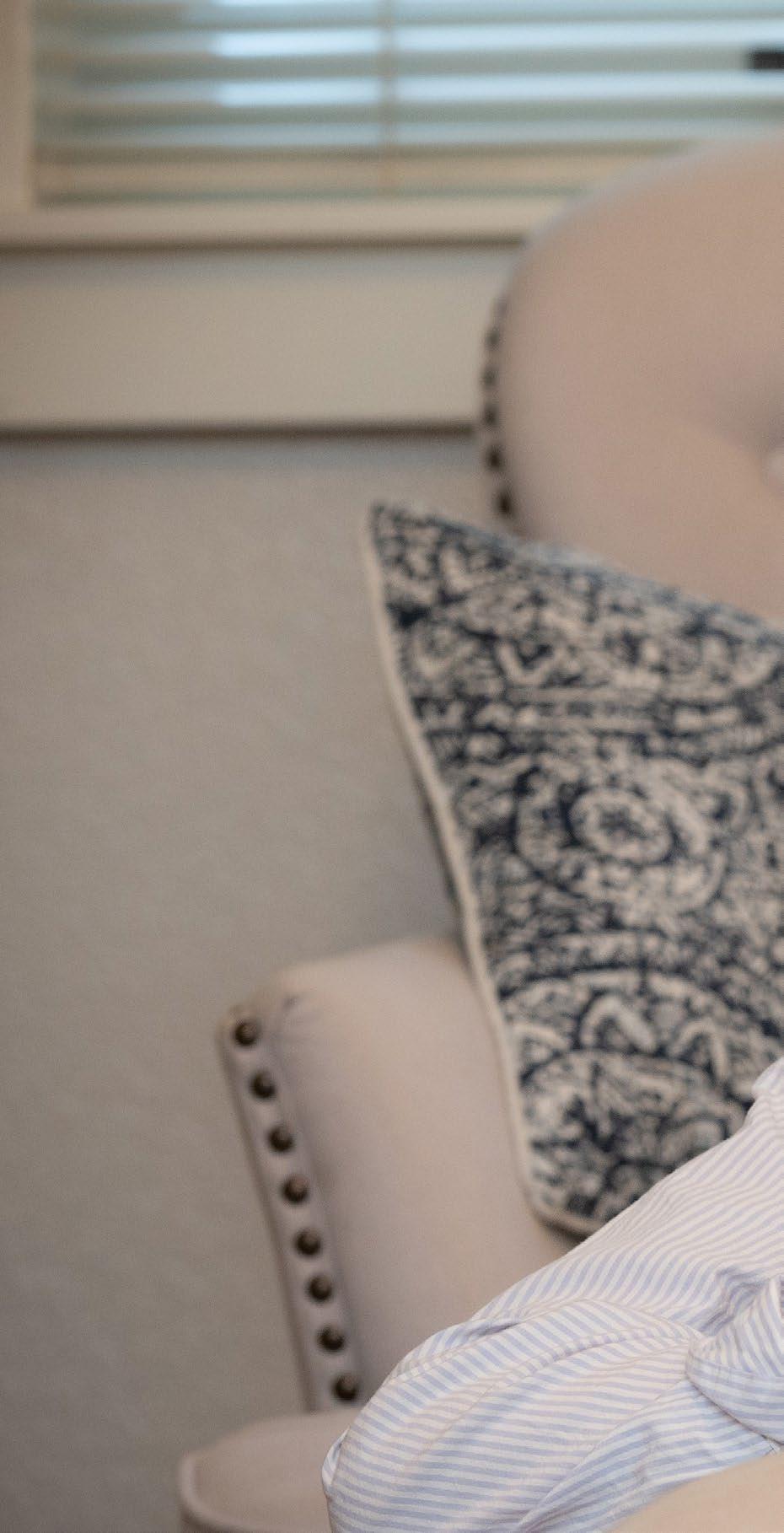
The four babies from the trial that have been born so far will be monitored by the research team until 30 months of age to fully
assess the procedure’s safety and effectiveness.
The first phase of the trial is funded by a $9 million state grant from the state’s stem cell agency, the California Institute for Regenerative Medicine (CIRM).
“This clinical trial could enhance the quality of life for so many patients to come,” said Emily, the first clinical trial participant who traveled from Austin, Texas to participate. Her daughter Robbie was born last September. “We didn’t know about spina bifida until the diagnosis. We are so thankful that we got to be a part of this. We are giving our daughter the very best chance at a bright future.”
Spina bifida, also known as myelomeningocele, occurs when
spinal tissue fails to fuse properly during the early stages of pregnancy. The birth defect can lead to a range of lifelong cognitive, mobility, urinary and bowel disabilities. It affects 1,500 to 2,000 children in the U.S. every year. It is often diagnosed through ultrasound. While surgery performed after birth can help reduce some of the effects, surgery before birth can prevent or lessen the severity of the fetus’s spinal damage, which worsens over the course of pregnancy.
“I’ve been working toward this day for almost 25 years now,” said Diana Farmer, M.D., F.A.C.S., F.R.C.S., the world’s first woman fetal surgeon, a professor and the chair of surgery at UC Davis Health, and principal investigator on the study.
2022 ANNUAL REPORT RESEARCH 33
The path to a future cure
As a leader of the Management of Myelomeningocele Study (MOMS) clinical trial in the early 2000s, Dr. Farmer had previously helped to prove that fetal surgery reduced neurological deficits from spina bifida. Many children in that study showed improvement but still required wheelchairs or leg braces.
Farmer recruited bioengineer Aijun Wang, Ph.D., specifically to help take that work to the next level. Together, they launched the UC Davis Health Surgical Bioengineering Laboratory to find ways to use stem cells and bioengineering to advance surgical effectiveness and improve outcomes. Dr. Farmer also launched the UC Davis
Fetal Care and Treatment Center with fetal surgeon Shinjiro Hirose, M.D., F.A.C.S., and the UC Davis Children’s Surgery Center several years ago.
Drs. Farmer, Wang and their research team have been working on their novel approach using stem cells in fetal surgery for more than 10 years. Over that time, animal modeling has shown it is capable of preventing the paralysis associated with spina bifida.
It’s believed that the stem cells work to repair and restore damaged
spinal tissue, beyond what surgery can accomplish alone.
Preliminary work by Farmer and Wang proved that prenatal surgery combined with human placenta-derived mesenchymal stromal cells, held in place with a biomaterial scaffold to form a “patch,” helped lambs with spina bifida walk without noticeable disability.
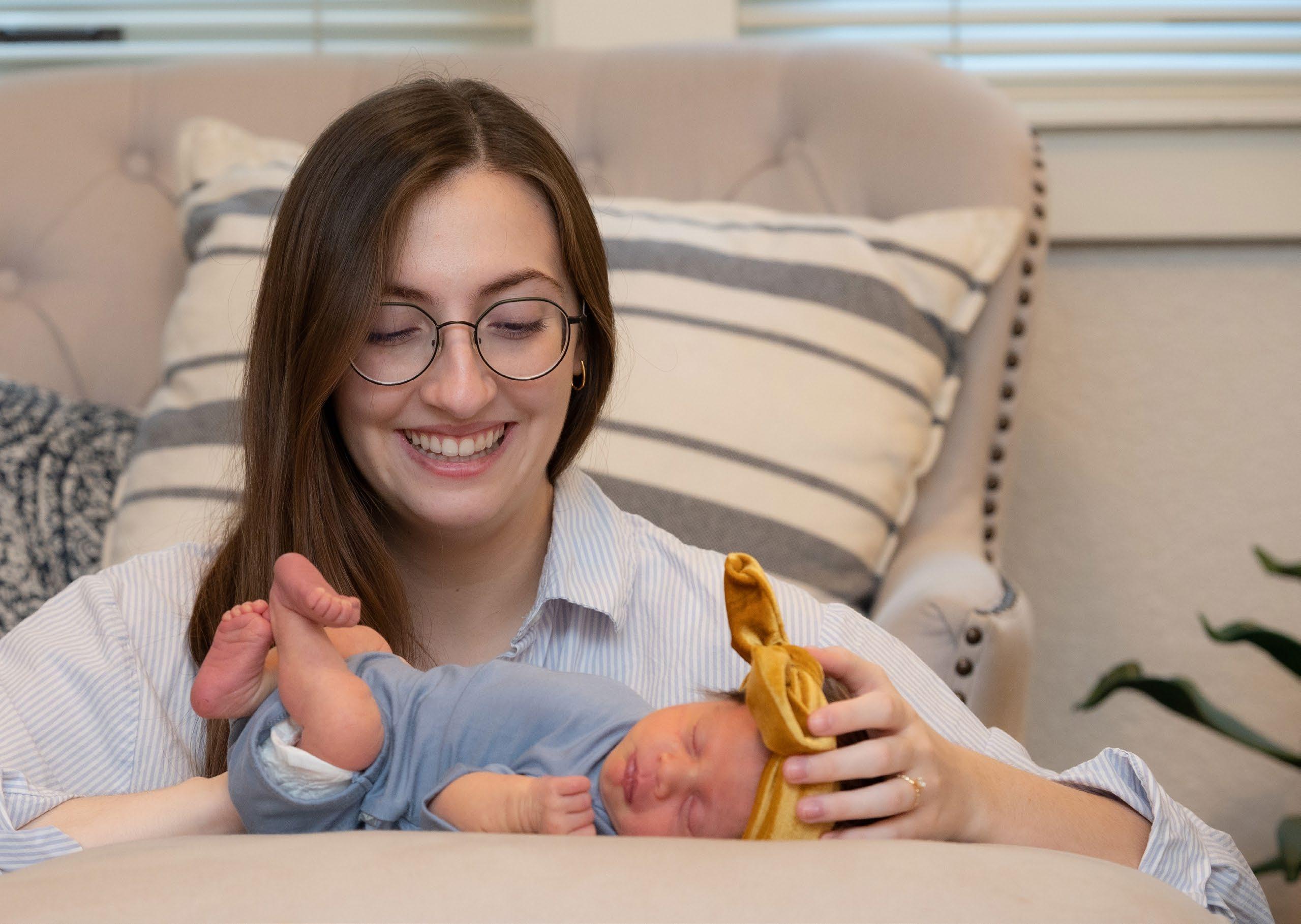
“When the baby sheep who received stem cells were born, they were able to stand at birth and they were able to run around almost normally. It was amazing,” Dr. Wang said.
When the team refined their surgery and stem cells technique for canines, the treatment also improved the mobility of dogs with naturally occurring spina bifida.
“I’ve been working toward this day for almost 25 years now.”
Diana Farmer
UC DAVIS HEALTH
DEPARTMENT OF SURGERY
34
Emily with baby Robbie.
A pair of English bulldogs named Darla and Spanky were the world’s first dogs to be successfully treated with surgery and stem cells. Spina bifida, a common birth defect in this breed, frequently leaves them with little function in their hindquarters.
By their post-surgery re-check at 4 months old, Darla and Spanky were able to walk, run and play.
The world’s first human trial
When Emily and her husband Harry learned that they would be firsttime parents, they never expected any pregnancy complications. But the day that Emily learned that her developing child had spina bifida was also the day she first heard about the CuRe trial.

For Emily, it was a lifeline that they couldn’t refuse.
Participating in the trial would mean that she would need to temporarily move to Sacramento for the fetal surgery and then for weekly follow-up visits during her pregnancy.
After screenings, MRI scans and interviews, Emily received the life-changing news that she was accepted into the trial. Her fetal surgery was scheduled for July 12, 2021, at 25 weeks and five days gestation.
Farmer and Wang’s team manufactures clinical grade stem cells — mesenchymal stem cells — from placental tissue in UC Davis Health’s CIRM-funded Institute for Regenerative Cures. The cells are known to be among the most promising type of cells in regenerative medicine.
The lab is a Good Manufacturing Practice (GMP) Laboratory for safe use in humans. It is here that they made the stem cell patch for Emily’s fetal surgery.
“It’s a four-day process to make the stem cell patch,” said Priya Kumar, Ph.D., the scientist at the Center for Surgical Bioengineering in the Department of Surgery who leads the team that creates the stem cell patches and delivers them to the operating room. “The time we pull out the cells, the time we seed on the scaffold, and the time we deliver, is all critical.”
A first in medical history
During Emily’s historic procedure, a 40-person operating and cell preparation team did the careful dance that they had been long preparing for.
After Emily was placed under general anesthetic, a small opening was made in her uterus and they floated the fetus up to that incision point
2022 ANNUAL REPORT RESEARCH
“This experience has been larger than life and has exceeded every expectation.
I hope this trial will enhance the quality of life for so many patients to come.”
35
Emily
so they could expose its spine and the spina bifida defect. The surgeons used a microscope to carefully begin the repair.
Then the moment of truth: The stem cell patch was placed directly over the exposed spinal cord of the fetus. The fetal surgeons then closed the incision to allow the tissue to regenerate.
“The placement of the stem cell patch went off without a hitch. Mother and fetus did great!” Dr. Farmer said.
The team declared the first-ofits-kind surgery a success.
Delivery day
On Sept. 20, 2021, at 35 weeks and five days gestation, Robbie was born at 5 pounds, 10 ounces, 19 inches long via C-section.
“One of my first fears was that I wouldn’t be able to see her, but they brought her over to me. I got to see her toes wiggle for the first time. It was so reassuring and a little bit out of this world,” Emily said.
Both mom and baby are at home and in good health. Robbie just celebrated her first birthday.
The CuRe team is cautious about drawing conclusions and says a lot is still to be learned during this safety phase of the trial. The team will continue to monitor Robbie and the other babies in the trial until they are 6 years old, with a key checkup happening at 30 months to see if they are walking and potty training.
“This experience has been larger than life and has exceeded every expectation. I hope this trial will enhance the quality of life for so many patients to come,” Emily said. “We are honored to be part of history in the making.”
Diana Farmer receives 2022 Harrington Scholar-Innovator Award to further research placental stem cells for adult-acquired spinal cord injuries
Department of Surgery Chair Diana Farmer, M.D., F.A.C.S., F.R.C.S., is one of 11 recipients of the 2022 Harrington ScholarInnovator Awards. The awards are given by the Harrington Discovery Institute at University Hospitals (UH) of Cleveland, Ohio. The scholar awards support a diverse set of drug discovery projects, including new treatments for pulmonary diseases, COVID-19, multiple cancers, corneal disease, hepatitis, and acquired spinal cord injuries. They include grants of at least $100,000, with the opportunity to qualify for up to $1.1 million. Farmer’s award will support further development of stem cell technology for adult-acquired spinal cord injury. The application of placental stem cells for such injuries remains largely unexplored. Dr. Farmer and team recently established a unilateral cervical spinal cord contusion model. Her study will evaluate stem cell treatment for acquired spinal cord injury. If successful, this multifunctional, stem cell-based regenerative treatment may lay the foundation for future clinical therapeutics to potentially improve the quality of life for these patients.

36 UC DAVIS HEALTH DEPARTMENT OF SURGERY
Drs. Farmer, Wang and team
to study synthetic data use in health care
Researchers from UC Davis have been awarded a $1.2 million grant over four years from the National Institutes of Health (NIH) to generate high-quality synthetic data, or data generated by a computer program. The interdisciplinary team includes Rachael Callcut, M.D., M.S.P.H., F.A.C.S., professor of trauma, acute care surgery, and surgical critical care, and UC Davis Health’s chief research informatics officer.
Sharing health care data is crucial for understanding patterns and trajectories in diseases to develop personalized medicines and personalized treatment. However, patient privacy regulations can make it tricky to share detailed data for analytical purposes. The challenge is to balance privacy concerns with data access, and to answer the overarching question: How to develop privacy-preserving machine learning techniques to make the data accessible for analytics? Enter synthetic data.
Synthetic data is generated by a computer program using real-world data as a model. It can be generated from real-world data in a way that preserves the statistical properties of the original data but without the risk of exposing sensitive information or violating privacy rules. The original data can come from various sources such as images, videos,
text, speech, etc. The machine learning techniques should be able to analyze the different modalities and combine them in a privacy-preserving way to generate the synthetic data.
The team is using Acute Respiratory Distress Syndrome (ARDS) — a high-risk condition — as a model to test their methods. About one out of every 10 intensive care unit (ICU) patients, and one out of every four mechanically ventilated patients in the ICU has ARDS.
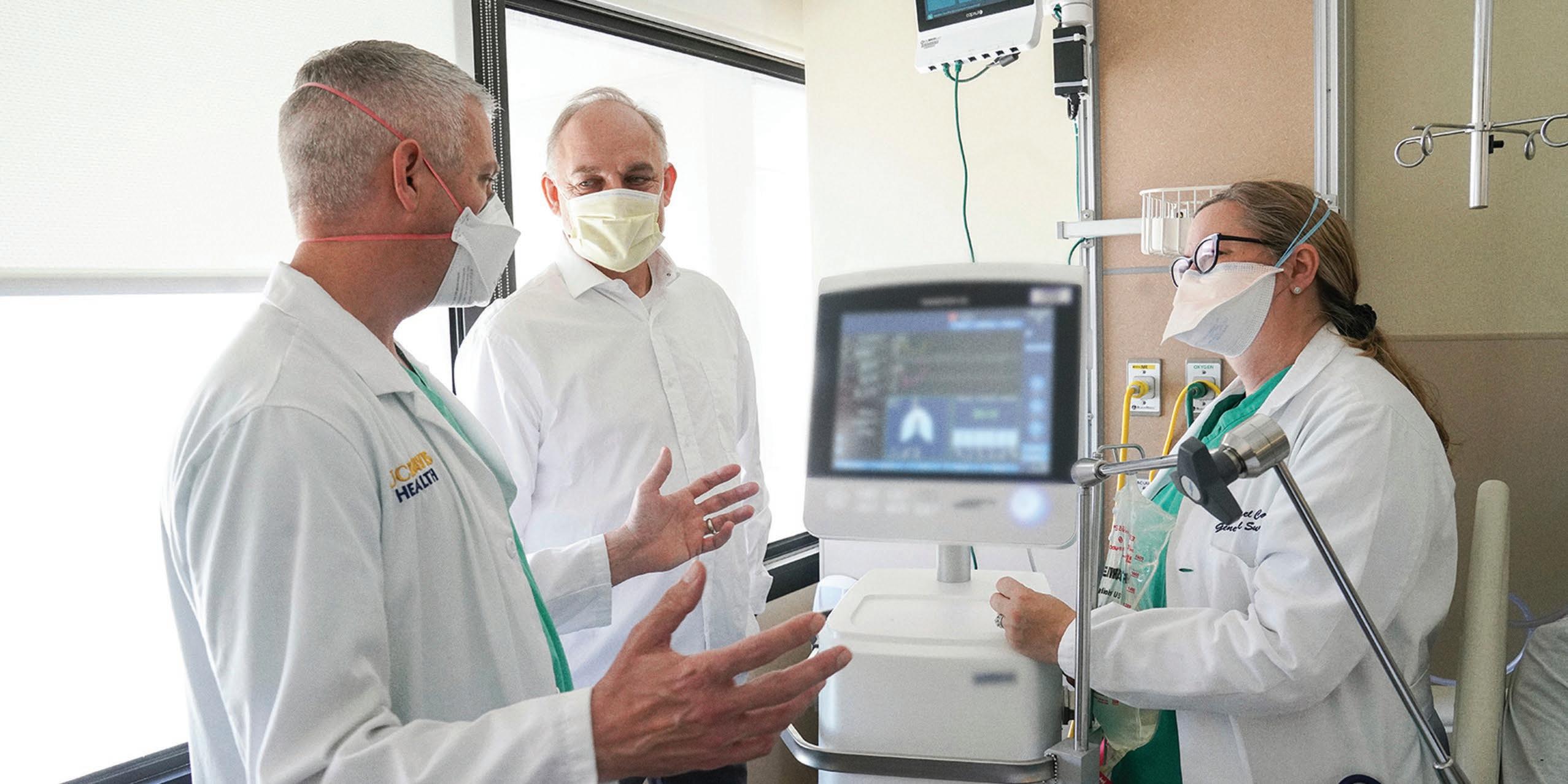
ARDS was selected because it has evidence-based life-saving treatments, and if diagnosed on time, those treatments can provide beneficial results. The other advantage to using ARDS as a model is that the data that classifies ARDS is multimodal in nature, and so it can be used to test the robustness of the machine learning algorithms.
Dr. Callcut and the research team have research expertise in clinical outcomes of ICU patients. She has worked on all aspects of ARDS detection, treatment, and management for over a decade. One of her goals as the chief of the research division is to unify teams to work on advanced analytics and machine learning.
Since ARDS patients in the ICUs are extremely sick, they tend to be routinely monitored through numerous channels, and as a result, a huge amount of multimodal health data is collected from ICU patients, much more than from typical hospitalized or outpatient clinic patients. Therefore, the ICU presents an ideal opportunity to precisely describe the clinical state of a patient, and then use the data to develop predictive algorithms that can do the same.
2022 ANNUAL REPORT RESEARCH 37
Researchers receive $1.2 million NIH grant
Dr. Callcut’s role has been to create the clinical use cases to help develop the data sources for the team to utilize. Her training as a data scientist helps her understand computational approaches.
“At our lab, we are looking at a panel of almost 40 different markers on patients to try to understand how those pathways are interacting with one another. Our real goal is to try to identify those patients early,” she said. “We can then create novel therapies and interventions that can potentially abate the development or severity of ARDS, and that’s why AI/ML algorithms will be so important in this field.”
In addition to the data that has been collected by research team members, Callcut has a diverse set of data from patients, ventilators and monitors. One
Investigating differences between men and women after bariatric surgery
Bariatric surgery is currently the most effective treatment for obesity and metabolic diseases. The mechanisms of how bariatric surgery is so effective are not well understood. Interestingly, it is also unknown why men and women have differing responses to bariatric surgery. Surgeon-scientist Victoria Lyo, M.D., M.T.M., F.A.C.S., was recently appointed as the Dean’s Scholar in Women’s Health Research by the UC Davis School of Medicine’s Building Interdisciplinary Research Careers in Women’s Health (BIRCWH) program. Through this 5-year mentored research award, Dr. Lyo will investigate how microbiome and metabolomic profiles differ between men versus women after bariatric surgery and how these differences may explain sex-specific outcomes. She has an outstanding mentor team including Dr. Mohamed Ali, Dr. Sean Adams, Dr. Bethany Cummings, and Dr. Anne Schafer. This award builds upon her research grant from the Society of Gastrointestinal and Endoscopic Surgeons and allows for her to develop her other interests in obesity-related fatty liver disease.
of the compelling aspects of this type of research is that the team will also analyze how well the data fare compared to real data in terms of understanding its efficacy in clinical environments.
“Part of the benefit and the excitement about this particular partnership between the clinical and analytical sides of our university is the opportunity to develop synthetic datasets that reflect the complexity, but also provide a high fidelity, which is what’s required to get useful machine learning algorithms when they go into the clinical environment,” said Callcut.
“Part of the benefit and the excitement about this particular partnership between the clinical and analytical sides of our university is the opportunity to develop synthetic datasets that reflect the complexity, but also provide a high fidelity, which is what’s required to get useful machine learning algorithms when they go into the clinical environment.”
UC DAVIS HEALTH DEPARTMENT OF SURGERY 38
Rachael Callcut
UC Davis wins $3 million CIRM grant to develop smart vascular graft for kidney patients
Preventing the vascular access clogging problem

Dr. Wang’s team is designing a vascular graft coated with a special molecule known as LXW7. This molecule interacts very specifically and engages strongly with endothelial progenitor cells and endothelial cells circulating in the blood.
LXW7 can promote binding of the endothelial cells to the synthetic grafts, mimicking what’s happening in the native vascular environment. This binding supports the formation of a lining that prevents blood clots from forming inside the graft.
“We developed this technology based on our understanding of how stem cells bind to the extracellular matrix,” Wang said. The extracellular matrix is a complex network of proteins and molecules surrounding and supporting the body’s cells and tissues. Cells need to bind to a friendly surface to grow on top of it.
The California Institute for Regenerative Medicine (CIRM) has awarded UC Davis Professor Aijun Wang, Ph.D., a $3 million grant to develop a smart durable vascular device for hemodialysis patients treated for kidney failure. This device uses a unique molecule that guides the body’s own stem cells to help prevent the failure of synthetic vascular grafts. Such failures are a common problem for kidney disease patients undergoing hemodialysis.

“Vascular access failure is the most common reason someone on hemodialysis needs to go to the hospital,” said Dr. Wang, vice chair for translational research, innovation and entrepreneurship and co-director of the Center for Surgical Bioengineering and leader of the Wang Lab at UC Davis. “A major cause of graft failure is the lack of a functional endothelium, the thin layer of cells that lines the inside of the blood vessels.”
Endothelial cells release enzymes that control blood clotting, immune function and platelet adhesion. Current synthetic vascular grafts generally lack these cells necessary to prevent blood clotting (thrombosis) and vessel narrowing (stenosis).
“The structure of the matrix is very important for cells to function. Our technology will support endothelial progenitor cell binding and provide the graft with a self-renewable living endothelium, which could prevent vascular graft failures.”
Dr. Wang described the device as being “off-theshelf” and very smart in reacting to a very specific type of cells. It utilizes the patient’s stem cells.
“The product itself does not contain live stem cells. After implantation, the binding sites on the graft can capture the patient’s own endothelial progenitor cells. This makes the device easy for physicians to use and reduces the cost without the need for live stem cell manufacturing,” he added.
Next steps
The grant falls under CIRM’s Medical Device Translational Research Projects. It will fund the prototyping, optimization, and testing of grafts fortified with the LXW7 molecule.
“This work has been in the making for several years. It started with a collaboration with Distinguished Professor of Biochemistry Kit Lam and Biomedical Engineering Professor Alyssa Panitch. Now, we are collaborating with a prolific team, including Vascular Surgeon Mimmie Kwong, and Junichiro Sageshima, surgical director of the Living Donor Kidney Transplant Program,” Wang said.
The team will also evaluate the device in small and large animal models. By 2024, they expect to file their documents for a pre-Investigational Device Exemption meeting with the Food and Drug Administration.
Vascular graft
“Our device can potentially improve the quality of life of hemodialysis patients and potentially those with other vascular diseases.”
2022 ANNUAL REPORT RESEARCH 39
Aijun Wang
National Institutes of Health (NIH) renews Knockout Mouse Project
The University of California, Davis, has been awarded more than $2 million from the National Institutes of Health under the next five-year phase of the Knockout Mouse Project, or KOMP. UC Davis is the lead organization in a consortium involving research partners at The Center for Phenogenomics in Toronto, Canada; the Children’s Hospital Oakland Research Institute, or CHORI; and Charles River Laboratories in Wilmington, Massachusetts.
“Knockout” mice are laboratory mice bred with specific genes silenced or “knocked out.” These mice have been an invaluable tool for fundamental research on a wide range of diseases and conditions.
The goal of this phase of the Knockout Mouse Project is to produce and phenotype knockout mouse models for up to 1,000 genes in an effort to better understand the genetic basis for diseases in humans and animals, said principal investigator Kent Lloyd, D.V.M., Ph.D., professor in the Department of Surgery in the UC Davis School of Medicine, and director of the UC Davis Mouse Biology Program.
Dogs inhale new immunotherapy to fight lung cancer
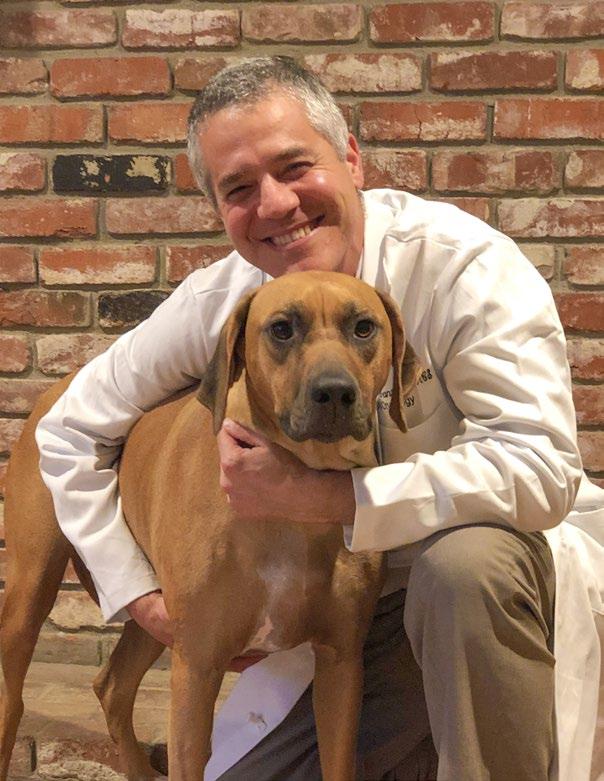
A protein that the body naturally produces could become an important new immunotherapy drug in the cache of cancer-fighting tools available to oncologists. Robert Canter, M.D., F.A.C.S., division chief of surgical oncology and co-director of the comparative oncology training program at UC Davis, and his research team conducted a first-of-its-kind Phase 1 clinical trial, where 21 pet dogs of various breeds that had metastatic lung disease resulting from osteosarcoma or melanoma were treated with protein interleukin-15 (IL-15). Although previously recognized for immunotherapy properties, IL-15 has undergone few human clinical trials because of toxicity risks associated with concentrated doses. The team studied a new approach that triggers the body’s defense mechanisms, its T-cells and natural killer (NK) cells, to respond and destroy cancer.
“No one previously had administered IL-15 as an inhaled treatment in dogs to deliver it directly to the site of the cancer. We came up with that idea as a means of reducing exposure to the rest of the body, in order to improve the benefit-risk ratio, to improve the immune stimulating effects, and to reduce toxicity,” Dr. Canter explained. “In this study, we used interleukin-15 to reinvigorate the immune system to make it recognize the cancer cells that had evaded the immune system and eliminate them.”
The research shows that amplified concentrations of IL-15 can stimulate immune system defenses
against some types of cancers in dogs. IL-15 is one of several types of cytokines — substances that have signaling and regulating functions in immune system activity.
“As part of our comparative oncology research, we are strong advocates of clinical trials in companion dogs, especially for immunotherapy, as a way to speed bench-to-bedside translation,” said Canter. “The cancers that afflict dogs, including sarcomas, brain tumors, lymphoma and melanoma, are incredibly similar to cancers that humans develop.”
UC Davis received a $2 million National Cancer Institute (NCI) grant to fund the comparative oncology training program to support the next generation of oncology researchers collaborating on curing cancer in both humans and dogs. For instance, osteosarcoma and melanoma that develop elsewhere in the body commonly spread to the lung, in dogs as well as humans.
Key findings in the study
The study yielded two significant findings: the therapy was well tolerated, and even a short twoweek course of inhaled IL-15 could lead to sustained suppression of advanced and diffuse metastatic cancer. The research team noted that in eventual clinical application, IL-15 likely would be used not as a standalone therapy, but as a reinforcement in combination with other treatments. This may help identify patients who might respond to this type of immunotherapy, as well as help us understand how to potentially combine other immunotherapies to improve response rates.
UC DAVIS HEALTH DEPARTMENT OF SURGERY 40
Our four residency programs provide unparalleled clinical and operative experiences; robust didactic, simulation, and conference curricula; career development and mentorship; and many research opportunities. For more than 50 years, we have been committed to training “thinking doctors” versus “cookbook doctors,” and take great pride in the success of our graduates.
2,348 residency applications
1,350 general surgery
127 vascular surgery
325 plastic surgery integrated
104 plastic surgery independent
117 cardiothoracic surgery
4 ACGME-accredited surgical residenc y programs

114 current interns and residents
3 ACGME fellowship programs
9 fellows
55% female residents
At a Glance
2022 ANNUAL REPORT | EDUCATION
Education
41
General Surgery
Residents PGY 1
Diego Anaya
UC Davis
Tiffany Cheng
University of Sout h Florida
Jesse Fenton
University of Florida
Amy Jones
Oregon Health & Science University
Christopher Seffren
Loyola U niversity
Sarah Singh
Boston U niversity
Daniel Strayve
Touro U niversity
Patrick Sur
UC Riverside
Tanya Thomas
University of Miami
General Surgery
Residents PGY 2
Carlos Cuenca, M.D.
Ana Isabel Jacinto, M.D.
Jeanine Justiniano, M.D.
Natalie Liu, M.D.
Sarah Mahdavi, M.D.
Maxwell Presser, M.D.
Cyrus Sholevar, M.D.
Sneha Swaminathan, M.D.
Yasamin Taghikhan, M.D.
General Surgery
Residents PGY 3
Nicholas Antonino, M.D.
Tyler Carcamo, M.D.
Jessica Guzman, M.D.
Sarah M ann, M.D.
Daisy Manzo, M.D.
Julia Riccardi, M.D.
Colton R yan, M.D.
Priya Suri, M.D.
Leah Timbang, M.D.
General Surgery
Residents PGY 4
Jennifer Geiger, M.D.
Matthew Haskins, M.D.
Kara Kleber, M.D.
Rafael Lozano, M.D.
Siobhan Luce, M.D.
Nicole Moore, M.D.
Elan Sherazee, M.D.
Jacquely n Yu, M.D.
General Surgery
Residents PGY 5
Jacob Burns, M.D.
Nathan Butler, D.O.
Gillian Hoshal, D.O.
Nikia McFadden, M.D.
Lauren Perry, M.D.
Trevor Plescia, M.D.
Ashly Ruf, M.D.
Michaela Simoncini, M.D.
Sarah Stokes, M.D.
Isabelle Struve, M.D.
Christina Theodorou, M.D.
Cardiothoracic Residents
Devon Ander son, M.D.
Nataliya Bahatyrev ich, M.D.
Melissa Blaker, D.O.
Sarah Chen, M .D., M.S.
Bret DeGraaff, M.D.
Jonathan Hyde, M.D.
Anna Xue, M.D. (Chief)
Plastic Surgery Residents
Spencer M. B rown, M.D.
Dattesh Dave, M.D.
Matthew Farajzadeh, M.D.
Joseph Firriolo, M.D.
Ella Gibson, M.D.
Dean Meshkin, M.D., M.S.
Jonathan Weyerbacher, M. D. (Chief)
Paul Winograd, M.D.
Jay Xue, M. D. (Chief)
Emily Zurbuchen, M.D.
Vascular Residents
Gregory Brittenham, M.D.
Lauren Cralle, M.D.
Kathryn DiLosa, M.D.
Nikunj Donde, M.D.
Keenan Gibson, M.D.
Joel Harding (Chief)
Austin Holmes (Chief)
Matthew N aede, M.D.
Cara Pozolo, M.D.
Matthew Schneck, M.D.
Matthew Vuoncino, M.D.
Research Residents
John Arriola, M.D.
Alyssa Bellini, M.D.
Kathleen Doyle, M.D.
Rachel Ekaireb, M.D.
Megan Gilbert, M.D.
Abdul Hassan, M.D.
Leslie Hopper, M.D.
Alexandra Johns, M.D.
Samy Ramadan, M.D.
Alexis Woods, M.D.
Center for Surgical Bioengineering Research Residents
SURGERY –RESEARC H RESIDENT
Abd-Elrahman Said
Hassan, M.D.
THORACIC SURGERY –INTEGRATED - RESIDENT
Nataliya Bahatyrevich, M.D.
SURGERY – MILITARY RESEARC H RESIDENT
Elise Hill, M.D., MPP, Capt , U.S.A.F.
NEU ROLOGICAL SURGERY –CHIEF RESIDENT
Edwin Kulubya, M.D.
PEDIATRIC SURGERY RESEARCH –RESEA RCH FELLOW
Su Yeon (Mary) Lee, M.D.
Zoe Saenz, M.D.
Emily Byrd, M .D., Ph.D.
Monalisa Hassan, M.D.
Surgery Fellows
ACUTE CA RE SURGERY
James Ross, M.D.
BUR N SURGERY
Alexandra Halevi, M.D.
CRITICAL CARE
Genna Beat tie, M.D.
Kovi Bessoff, M.D.
Melissa Grigsby, M.D.
John Sojka, M.D.
M IS SURGERY
Sonam Kapadia, M.D.
Mohammad Sultany, M.D.
Preliminary Residents
GENERAL SURGERY PRELIMINARY RESIDENTS
Robert Choi, M.D.
Austin Clark, M.D.
Josephine Hai, M.D.
Cassandra Leonardo, M.D.
Michael Lung, M.D.
Nasir Saed, D.O.
Angela Sardo, M.D.
Joel Thomas, M.D.
Harjot V irk, M.D.
MILITARY PRELIMINARY RESIDENTS
Michelle Arnold, M.D.
Jeffrey Backofen, D.O.
Hannah Davis, D.O.
Hunter Ford, M.D.
Katrina H auck, D.O.
Justin King, M.D.
Jarom Ruby, D.O.
Matthew Taira, M.D.
UC DAVIS HEALTH DEPARTMENT OF SURGERY 42
Putting diversity, equity, and inclusion into practice
The UC Davis Department of Surgery is based in Sacramento, California, one of the most racially and ethnically diverse cities in the United States. Given this, we are committed to fostering a collaborative and inclusive environment for all human differences, regardless of race, ethnicity, language, nationality, sex, gender identity, sexual orientation, socioeconomic status, religion, geography, disability, or age. We are proud to report that 86% of our faculty participated in and completed the Supporting Educational Excellence in Diversity (SEED) training.

This past year, we have implemented several efforts toward improving health equity. Drs. Luis Godoy and Ian Brown represented UC Davis and Northern California in the first statewide University of California Surgery Health Equity Grand Rounds.
We recognize that a significant aspect of achieving health equity begins with having a diverse workforce. We have focused on outreach and several pipeline efforts to recruit the next generation of physicians from community college to medical students. We increased our presence by participating in outreach forums such as UC Berkeley’s Minorities in Health Conference and virtual workshops with PremedCC.org, which helps guide community college premed students along their academic journey toward medicine.
We reinforced our commitment and partnership with Prep Medico, a partnership between UC Davis Health and Kaiser Permanente that gives underrepresented college students a behind-the-scenes look at what it takes to get into medical school and become a doctor.
We hosted a Graduate Medical Education Diversity, Equity, and Inclusion Day for Prospective Residents, resulting in a great turnout of interested medical students.
We increased involvement with our Socially Responsible Surgery (SRS) chapter to develop a research “dry lab” with teams composed of a faculty lead, a lead resident, and medical students. Current projects include looking at rural health disparities, diversity in surgery, and recidivism of violently injured patients.
We have continued our efforts to evaluate health disparities on the educational front during our M&M conference. In August, we held the inaugural “Cultural Complications” case, which successfully spurred discussion and interest amongst the faculty, residents, and medical students.
We recognize that diversity, equity, and social justice are essential. We will continue to identify opportunities to listen, learn and foster discussions on these complex issues and look for meaningful ways to implement fresh perspectives into our training curriculum.
Luis Godoy, M.D., Department of Surgery Director of Diversity, Equity and Inclusion
New Anti-Racism and Cultural Humility (ARC) Fellowship established
This year, the UC Davis Office for Health Equity, Diversity, and Inclusion (HEDI) established an Anti-Racism and Cultural Humility (ARC) Fellowship for faculty and research residents. This 6-month fellowship is built on a framework of Cultural Humility where participants will gain insight on:
Shared vocabulary around AntiRacism and Cultural Humility
Racial dialogue facilitation skills
Educational approaches and content
Research approaches, including clearly and accurately defining race in research strategies, analyses, and reporting
Application of Racial Identity Development Theory in strategies in education, training, and supervision
Community organizing strategies for institutional change
There is still much work to be done. We look forward to investing in our students, trainees, faculty, and staff in our commitment to eliminate structural inequities, racism, and sexism in health care and academia.
2022 ANNUAL REPORT EDUCATION 43
Two medical students earn national recognition for their dedication to sustainable health care

Carter White, (MS4) and Aida Nasirishargh (MS4) who run Second Breath at UC Davis were recently recognized with an Emerging Physician Leader Award and a fellowship grant from Health Care Without Harm, a group that seeks to transform health care worldwide and reduce its environmental footprint. White and Nasirishargh are co-leaders of Second Breath, a program that saves unused and discarded medical equipment from going to the landfill and provides it to individuals and organizations that need them. “We’re really excited about these two awards,” White said. “We’d be doing this work regardless, but it’s nice to have some recognition and financial support.”
Wound care supplies have been shipped to Africa. Much needed gauze, sterile gloves and antiseptic to treat wounds and infections are now in Ukraine. Durable medical equipment, such as wheelchairs and walkers, have found a home in underserved communities. The majority of the supplies are used in the community for educational purposes.
Second Breath, run by student volunteers, relies on word-of-mouth and email to match donors with people who can use the supplies. It was co-founded at UCLA by resident physician Andrew Li, M.D., who then brought the idea to UC Davis where he is a faculty member in the Division of Plastic and Reconstructive Sur-
gery. Li set up the UC Davis program in 2019 with medical student Joshua Hwang.
“It’s such an honor and a pleasure to work with Josh, Aida and Carter,” Dr. Li said. “It’s a privilege to see Second Breath grow tremendously in the hands of these students who have taken it to another level.”
For more information on Second Breath, visit second-breath.org
Burn Fellowship receives provisional verification
The Burn Fellowship at UC Davis is pleased to have received initial verification by The American Burn Association (ABA) Burn Center Verification Review Committee. The committee has determined that the Firefighters Burn Institute Regional Burn Center at UC Davis meets the requirements for fellowship as a burn fellowship program. The finalization of the verification will occur during the burn center site visit in Spring 2024. “Burn Fellowship verification demonstrates our dedication to developing the burn surgeon leaders of the future. We are excited to be among the elite in burn education,” notes Tina Palmieri, M.D., burn division chief, professor and director, Firefighters Burn Institute Burn Center at the University of California Davis and assistant chief of burns, Shriners Children’s Northern California.
ReSurg ‘Fostering the Future’ outreach
RESURG (Research Experience in Surgery) had its second annual outreach event, “Fostering the Future,” this past summer. This two-day program aims to provide underserved high school students the opportunity to explore careers in the field of health care and learn valuable professional and life skills that will aid in fostering a successful future in health care careers. The event featured interactive workshops on professional development, professional networking, and education about various careers in health care, medicine, and clinical research. Some courses offered were a suturing workshop, medical professions panel, and a resume/cover letter writing class. This event has been an enormous success and would not have been possible without the support of the health care professionals who participated and our RESURGers who led the students.
Carter White and Aida Nasirishargh run Second Breath, which finds a home for unused or discarded medical supplies
44
A national model for military-civilian surgical training
UC Davis Department of Surgery is the proud home to one of a few surgical training programs in the United States that are designated as a United States Air Force (USAF) surgery training institution. What started 44 years ago with the arrival of Dr. F. William Blaisdell was a commitment to advocating for military service members and the veterans of Northern California. Frequently referred to as the father of trauma care, he recognized the need to further surgical care, particularly in areas of vascular, trauma, and research. It was this commitment to the VA Healthcare System in Northern California that forged the relationship between UC Davis Surgery and the military.
In 1995, we formalized this relationship through a special partnership with the David Grant USAF Medical Center at Travis Air Force Base to provide training for military surgeons. The Program for Military Surgical Education is designed to provide robust surgical training unique to military surgeons and surgical trainees at a national and international level.
“Because of our long history of collaboration between UC Davis Surgery, Sacramento Veterans Administration, and Travis Air Force Base, started by Dr. Blaisdell, our partnership with David Grant USAF Medical Center has become a national model for military-civilian surgical training,” said Diana Farmer, M.D., F.A.C.S., F.R.C.S.
one year of required research and 6–8 military interns into our preliminary PGY-1 program. The program is fully integrated and fully accredited, with the majority of the clinical residency experience occurring at UC Davis Health and our affiliated training sites, which include the Sacramento Veterans Administration, Shriners children’s hospital, and Kaiser Permanente. Through this residency training program, active-duty military are provided with the unique opportunities of performing an “active-duty residency” with associated pay while simultaneously accruing time in service and gaining the advantage of training at predominantly civilian sites, which provide for a robust learning-rich environment.
Currently, we provide two surgery training pathways: general surgery and vascular surgery. Our general surgery training program accepts two military residents each year into a six-year general surgery residency program with
“I am extremely fortunate to have had the opportunity to train in this unique program and to return as a fulltime embedded, active-duty trauma faculty member. The clinical skills, research opportunities, and connections afforded to me here

“We are proud and honored to help train future physicians and surgeons in the U.S. Air Force. We know our graduates, after one year or six, will go on to be outstanding in their service and support of U.S. military personnel at home and abroad.”
2022 ANNUAL REPORT EDUCATION 45
Edgardo S. Salcedo Program Director, General Surgery Residency
launched my career. I am proud to represent UC Davis and Travis Air Force Base as the American College of Surgeons’ Military Future Trauma Leader,” said Rachel Russo, M.D., M.S., as a former military trainee and now faculty, leading the military resident research program.
Our vascular surgery training program accepts one military resident each year. The program is an integrated five-year (0+5) training program leading to eligibility for certification by the Vascular Surgery Board of the American Board of Surgery. Military applicants are accepted from either the Uniformed Services University of the Health Sciences (USUHS) or the Health Professions Scholarship Program (HPSP) via the Joint Services Graduate Medical Education Selection Board (JSGMESB).
“The military residents and experience bring another level of training to our program and research. It is an invaluable experience that no other Vascular Surgery Residency in the United States can offer,” says Misty Humphries, M.D., M.A.S., R.P.V.I., F.A.C.S., program director of the UC Davis Integrated Vascular Residency.
As a surgical program known for being at the forefront of surgical innovation and training, we recognize that the relationship between civilian and military medicine is mutually beneficial. During times of war, advances in technology and strategies for medical treatments are dispersed into society to benefit all, and during times of peace, innovations in surgical care in the civil sector can positively influence military medicine. Dr. Blaisdell understood this beneficial collaboration, and it is a relationship that is still one that UC Davis Surgery takes great pride in supporting four decades later.
Continuing the mission of working for surgical equity
The Socially Responsible Surgery (SRS) chapter at UC Davis continues to gain momentum amongst faculty, residents, and medical students. This growth is illustrated through the many active projects this year that support the organization’s four pillars: advocacy, education, research, and service.
Advocacy: SRS has been engaging in many policy topics, including the successful passage of the Stop-The-Bleed with the California chapters of the American College of Surgeons and issues related to gun violence legislation and domestic abuse mandated reporting.
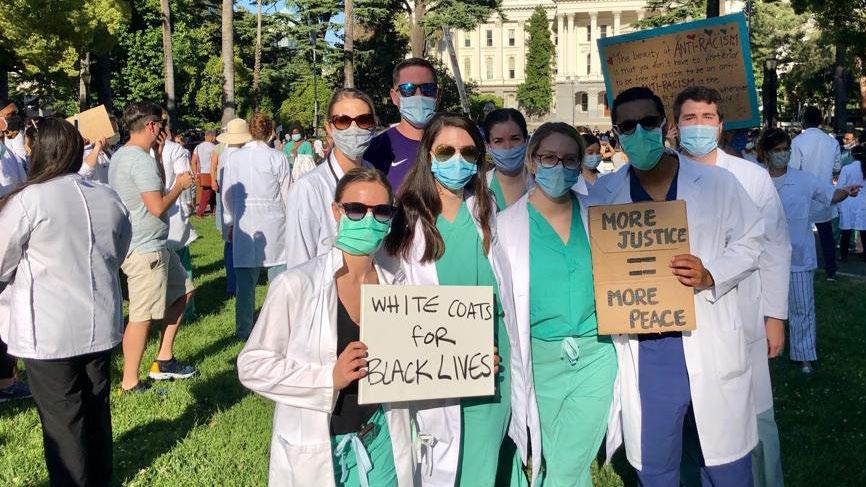
Education: SRS has been active in delivering lectures to 3rd-year medical students starting their clerkship on social determinants of health concerning surgical patients. In addition, SRS has continued the Student Service Learning Project, where pre-clinical medical students teach trauma patients about chest trauma and find more information about their social situations to help the clinical team.
Research: SRS has had multiple oral presentations at the 2022 Clinical Congress of the American College of Surgeons. The number of projects on socially responsible surgery topics is vast and includes multiple faculty from different surgical specialties and upwards of 10 medical students. Two wellattended resident presentations came from Elise Hill, M.D., who presented her recent research work on race in medicine, and from an Alexandra Johns, M.D., presentation on her research on the stigma of obesity which was also featured during a University of California-wide health equity presentation by Assistant Professor Luis Godoy, M.D.
Service: SRS is committed to service and, this year, in collaboration with surgery faculty and medical students, is creating patient education videos in Spanish.
With year-over-year growth, SRS is looking forward to the many new projects, manuscript submissions, and conference presentations that 2023 will bring to UC Davis.
DEPARTMENT OF SURGERY 46
UC DAVIS HEALTH
Development
Grateful patient supports the next generation of thoracic surgeons

Through the generous support of Mr. Barry Beals, the Division has created the “Barry Beals Research Internship Award in Honor of Dr. David T. Cooke.” Mr. Beals began supporting the Division on the first anniversary of his successful treatment to honor Dr. Cooke and his care team. After giving annually for many years, Barry decided he wanted to make a more significant impact and ensure his support would continue in perpetuity, leading him to establish this endowed fund. In making this gift, the Division is able to support internship opportunities that will allow medical students, residents, and fellows to engage in basic, clinical, and translational research projects under the mentorship of experienced researchers and principal investigators. The 2022 Award recipient is Ms. Araiye Medlock, a UC Davis School of Medicine 1st year medical student. Ms. Medlock is a graduate of UC Irvine and is an Academic Research Careers for Medical Doctors (ARC-MD) Scholar.
Ms. Araiye Medlock (MS1), the first recipient of the Barry Beals Research Internship Award

Support the work of the Department of Surgery
For more than 50 years, thousands of people have entrusted the UC Davis Department of Surgery to provide them with first-rate medical care. Many turn to us because of our well-established history of innovative leadingedge treatments and our reputation for attracting some of the finest surgical trainees and surgeons in the country. Over the past five decades we’ve built a strong, nationally recognized and ranked surgery program dedicated to advancing new standards of surgical care through research and pioneering treatments. Our success is furthered by philanthropic contributions from people like you. Here at the Department of Surgery, we don’t just work alone. Your support is essential to our continued discovery of insights, innovations and tools to improve human health. Gifts from our alumni, patients and friends assist us with training in the latest surgical techniques, advancing surgical care through research discovery, and achieving the best possible outcomes for patients. When you make a gift to the Department of Surgery, you enhance our ability to make groundbreaking discoveries that directly and profoundly benefit patients and the community.
2022 ANNUAL REPORT DEVELOPMENT 47
For more information on how to make a gift to the UC Davis Department of Surgery, or to a specific physician or scientist within the department, please contact J.R. Springer at jrspringer@ucdavis.edu. We invite you to join us in advancing the future of health care.
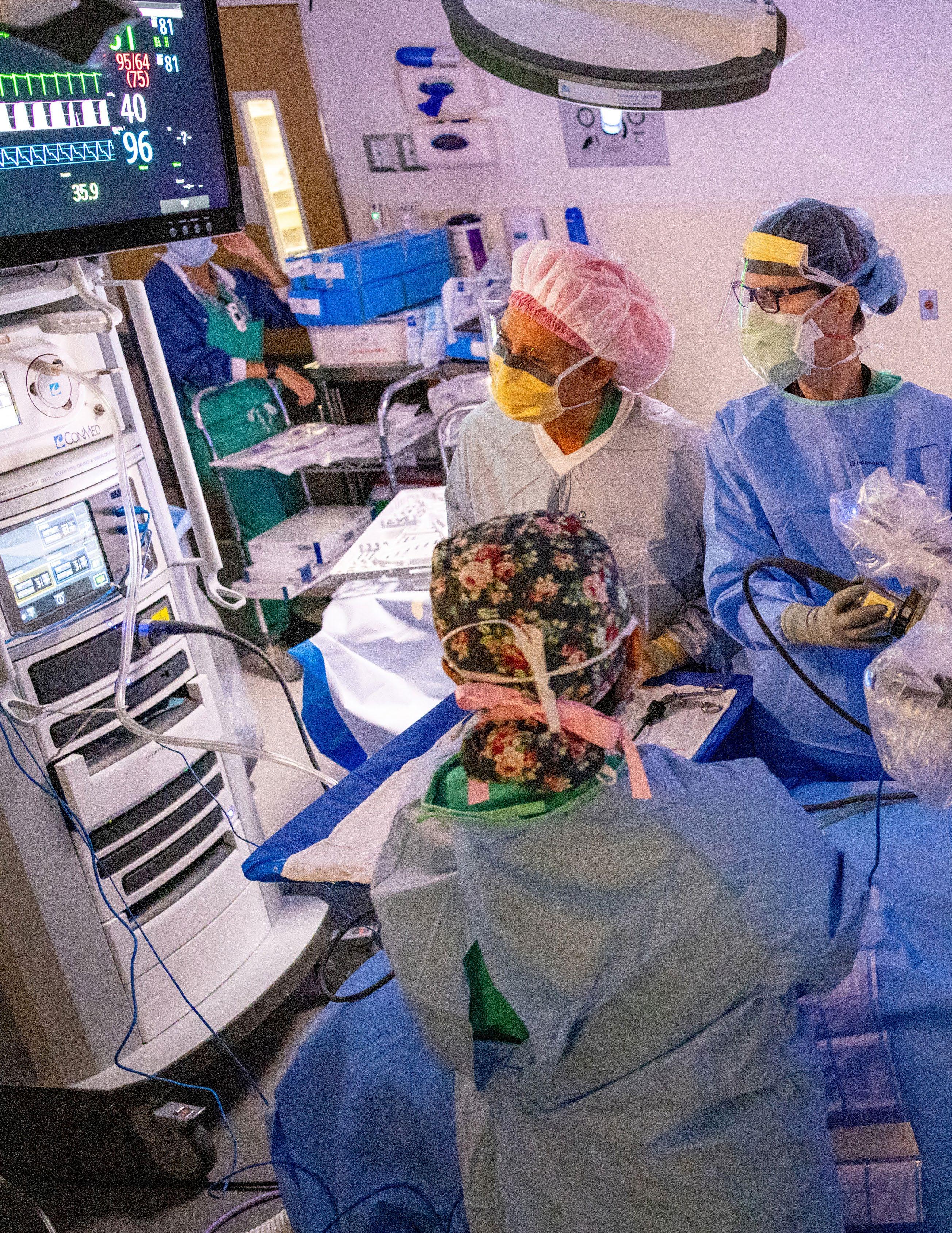
UC DAVIS HEALTH DEPARTMENT OF SURGERY 48
Referral and Contact Information
Leadership
Diana Farmer, M.D., F.A.C.S., F.R.C.S.
Distinguished Professor and Pearl Stamps Stewart Chair
Chair, Department of Surgery, UC Davis School of Medicine
Surgeon-in-Chief, Emeritus, UC Davis Children’s Hospital
Founder and Co-Director, Center for Surgical Bioengineering PI, the CuRe Trial
Sean Adams, Ph.D. Vice Chair, Basic Research
Richard Bold, M.D., F.A.C.S. Vice Chair, Strategy
Rachael Callcut, M.D., M.S.P.H., F.A.C.S. Vice Chair, Clinic al Science
David T. Cooke, M.D., F.A.C.S. Vice Chair, Faculty Development and Wellness
Shinjiro Hirose, M.D., F.A.C.S. Vice Chair, Finance and Children’s Services
Gregory Jurkovich, M.D., F.A.C.S. Vice Chair, Clinical Affairs and Quality
Tina Palmieri, M.D., F.A.C.S. Vice Chair, Clinical Trials
Edgardo Salcedo, M.D., F.A.C.S.
Interim Vice Chair, Education
Aijun Wang, Ph.D.
Vice Chair for Translational Research, Innovation and Entrepreneurship
Surgery Clinic Locations
Surgery Clinic
Cypress Bldg., Suite E 2221 Stock ton Blvd. Sacramento, CA 95817 916 -734-2680
UC Davis Medical Center 4251 X St., Sacramento, CA 95817 916 -734-2011
Plastic Surgery Clinic 3301 C St., Sacramento, CA 95816 916 -734-7844
UC Davis Comprehensive Cancer Center 2279 45th St., Sacramento, CA 95817 916 -734-5959
Transplant Clinic
2315 Stockton Blvd., Sacramento, CA 95817 916 -734-2111
Vascular Clinic
4860 Y St., Suite 2100 Sacramento, CA 95817 916 -734-3800
Fetal Treatment Center
UC Davis Children’s Hospital 2315 Stock ton Blvd. Sacramento, CA 95817 916 -794-2229
Referrals
Referral and Transfer Center 800-4-UCDAVIS (800-482-3284)
49
Physician
Physician
referrals.ucdavis.edu
UCDavisSurgery
uc-davis-department-of-surgery
ucdavissurgery
UCDSurgeryInternal

Contact Us Department of Surgery UC Davis School of Medicine 2335 Stockton Blvd. NOAB 6th Floor Sacramento, CA 95817 916-734-3528
surgerynews@ucdavis.edu Follow us on social media
health.ucdavis.edu/surgery
ucdavissurgery
Department of Surgery
2335 Stockton Blvd.
Sacramento, CA 95817
916-734-3528
Referrals: referrals.ucdavis.edu
800-4-UCDAVIS (800-482-3284)







 Diana Farmer, M.D., F.A.C.S., F.R.C.S.
Diana Farmer, M.D., F.A.C.S., F.R.C.S.




















 Assistant Professor, Colorect al Surgery
Assistant Professor, Colorect al Surgery






 Assistant Professor, Trauma, Acute Care, and Critical Care Surgery
Assistant Professor, Trauma, Acute Care, and Critical Care Surgery
 James Taylor, M.B. B.Chir., M.P.H. Assistant Professor, Colorect al Surgery
James Taylor, M.B. B.Chir., M.P.H. Assistant Professor, Colorect al Surgery





























